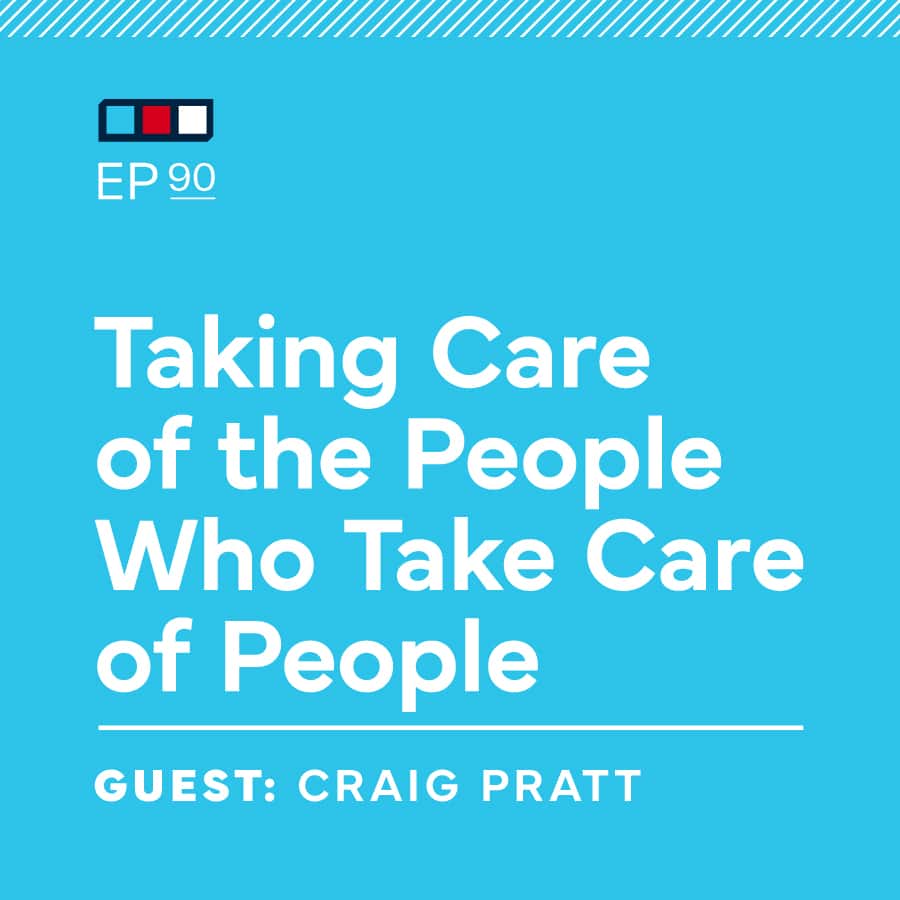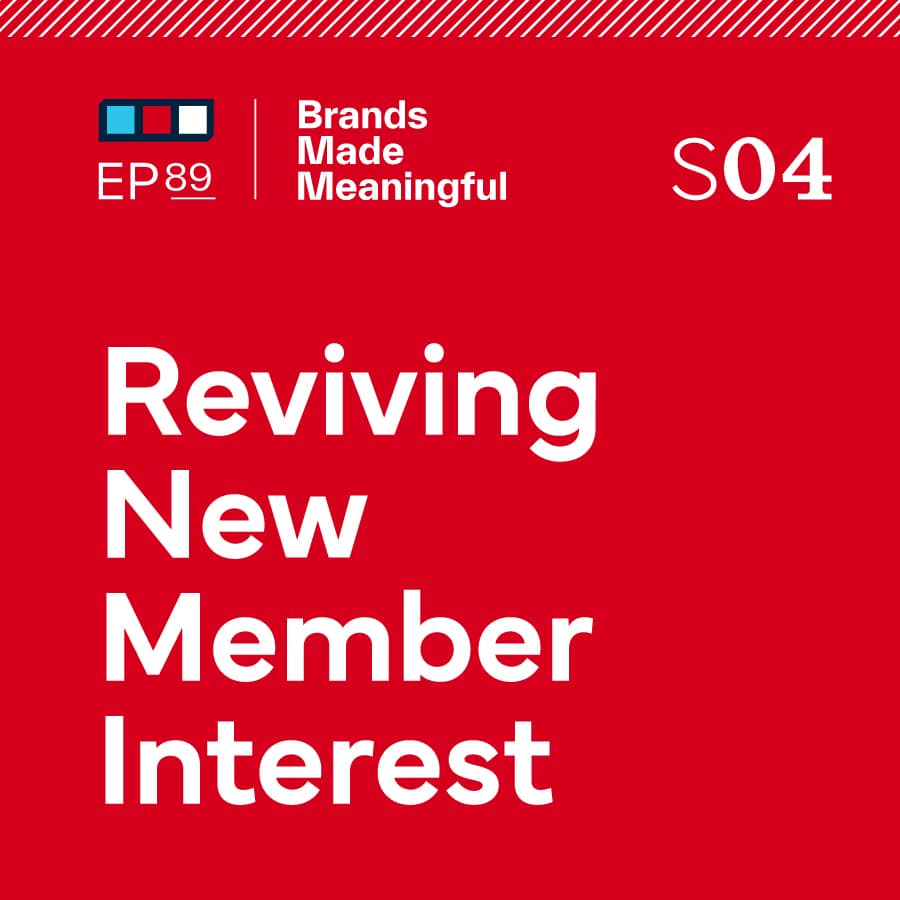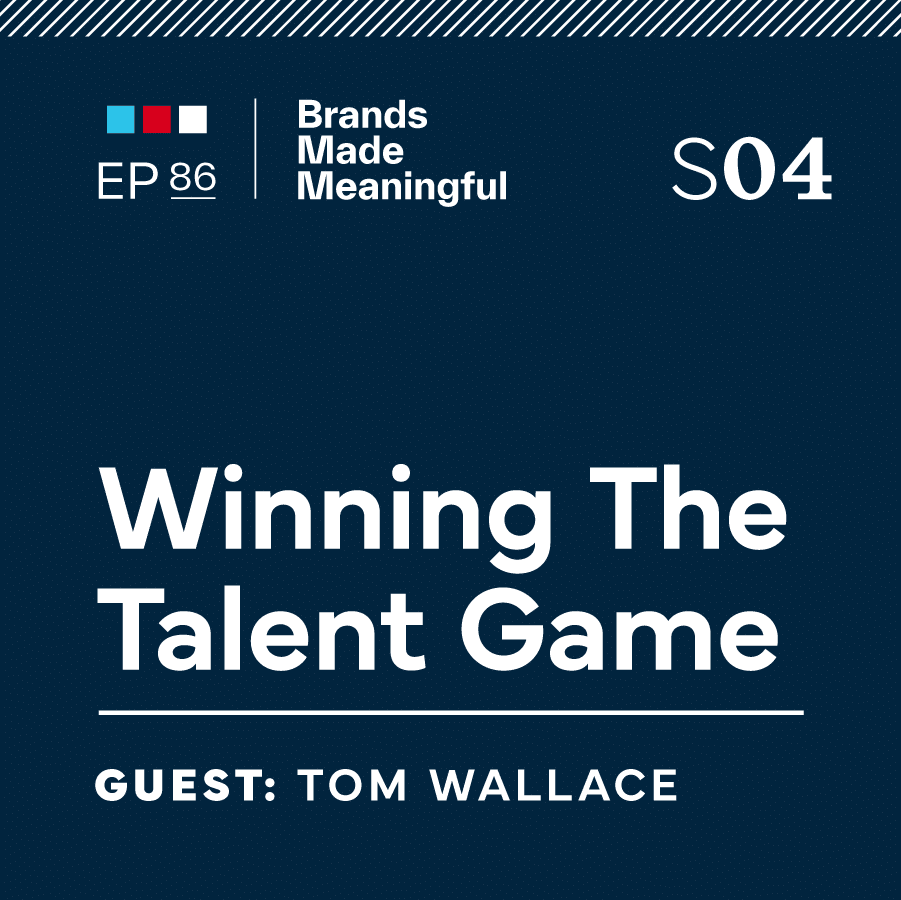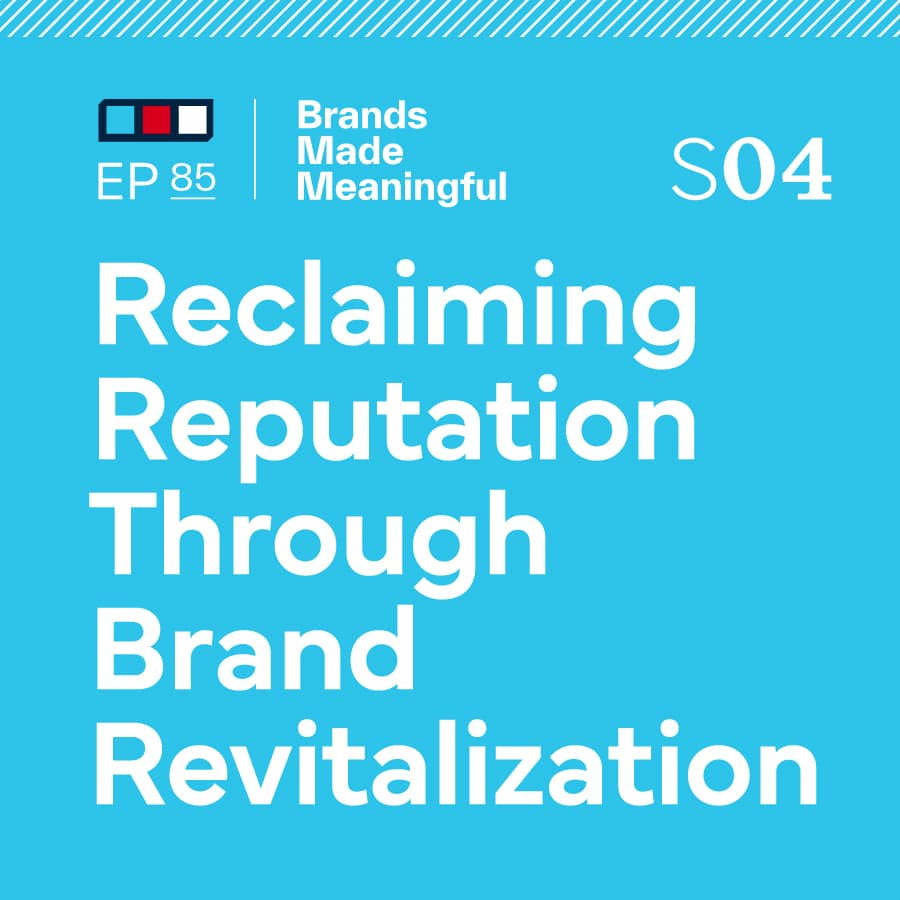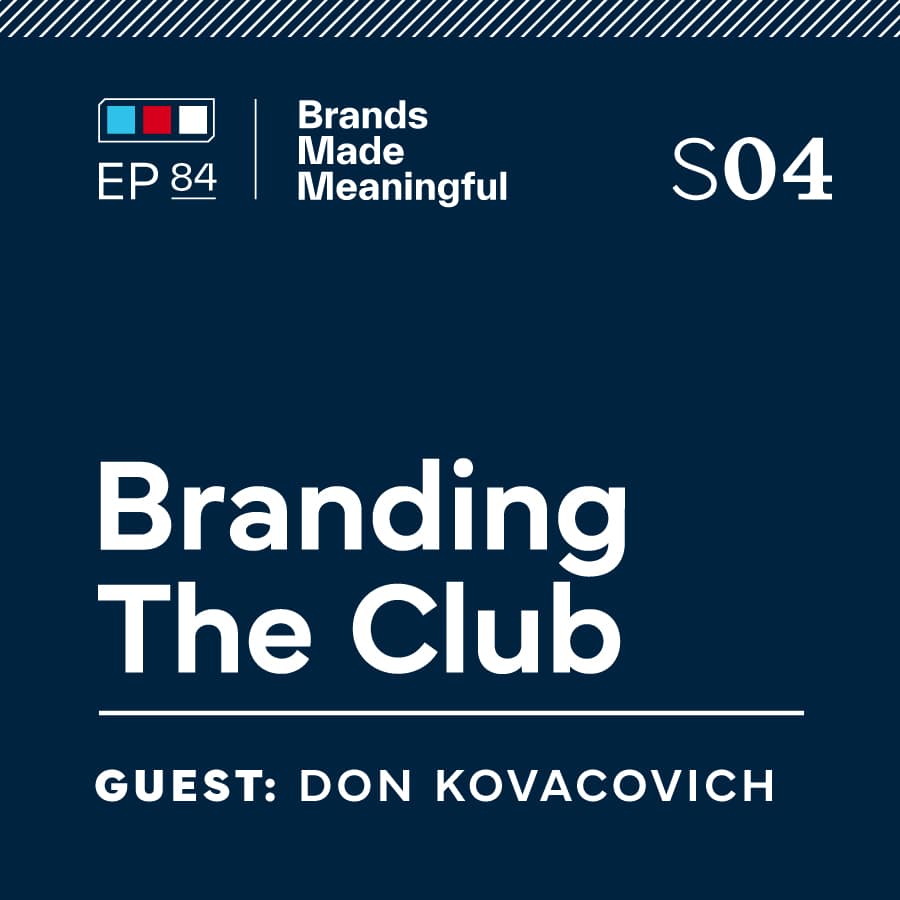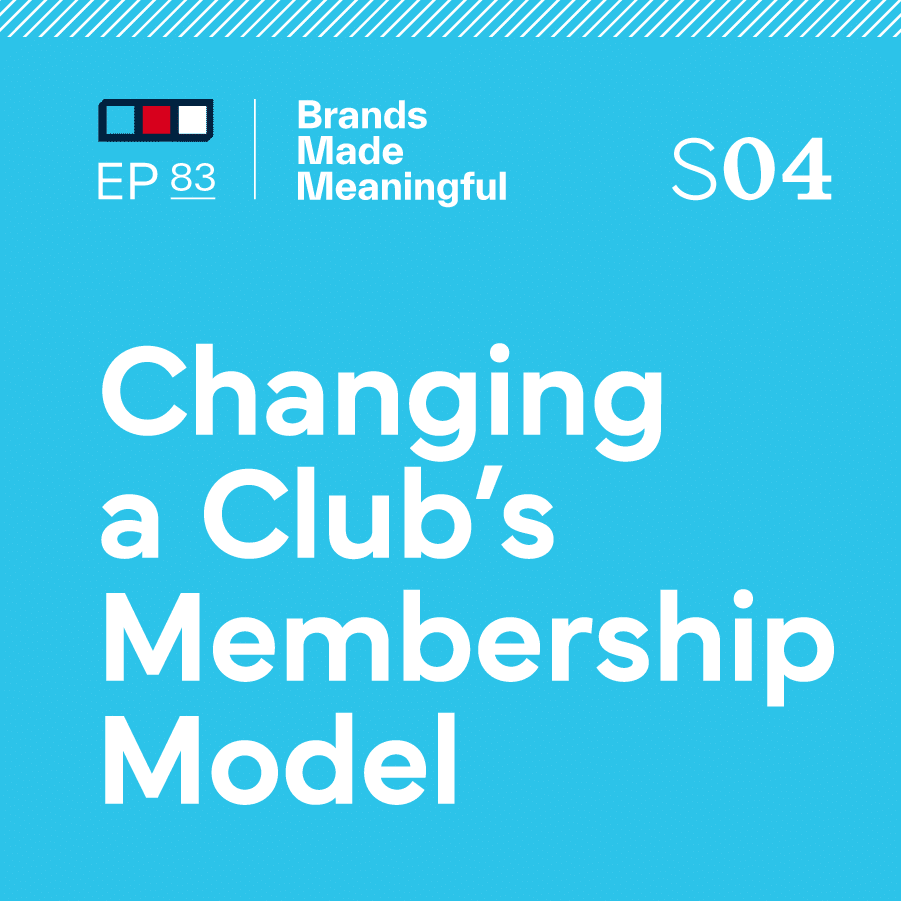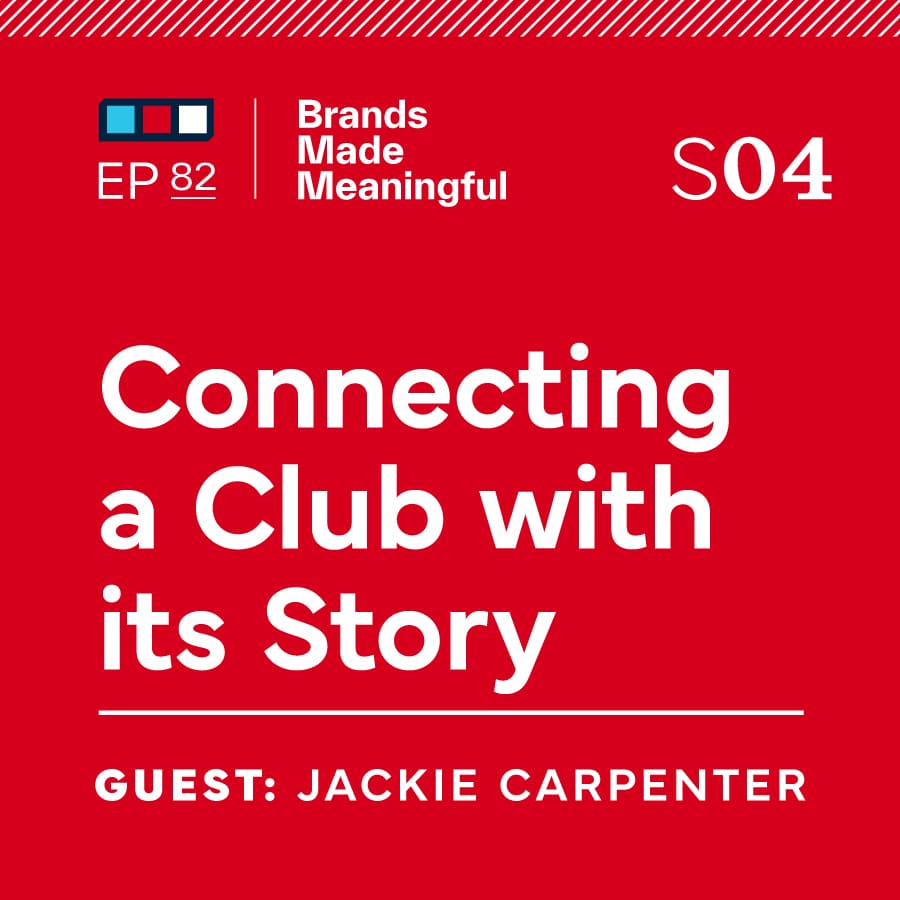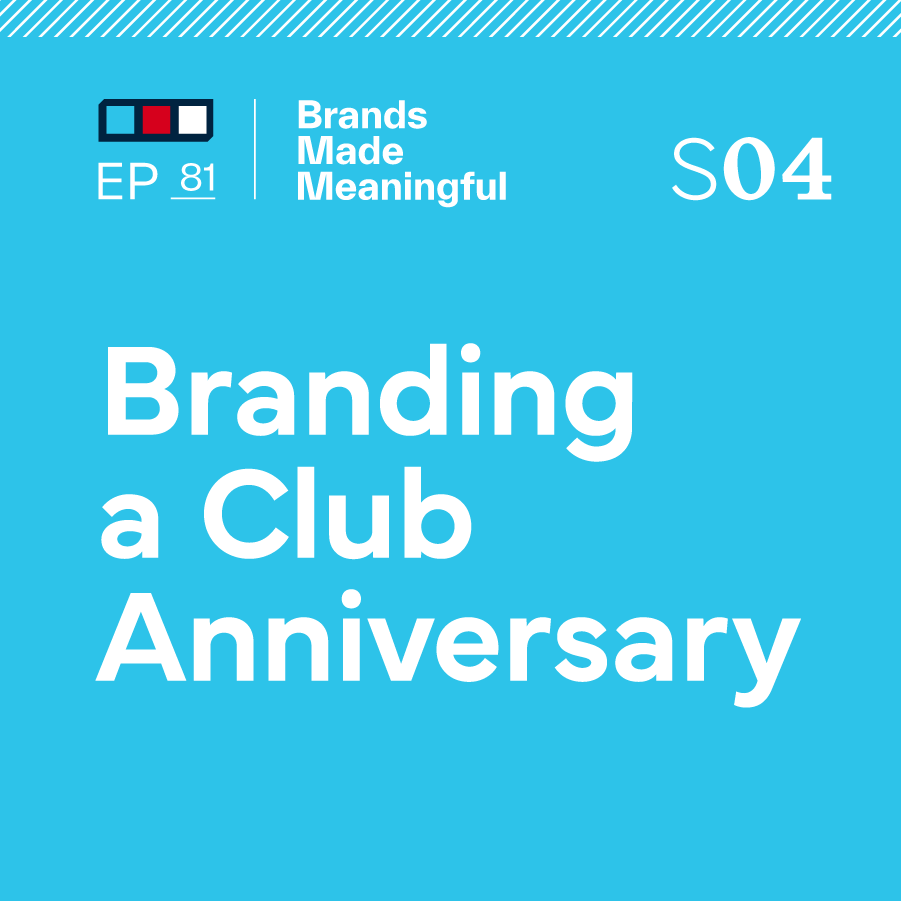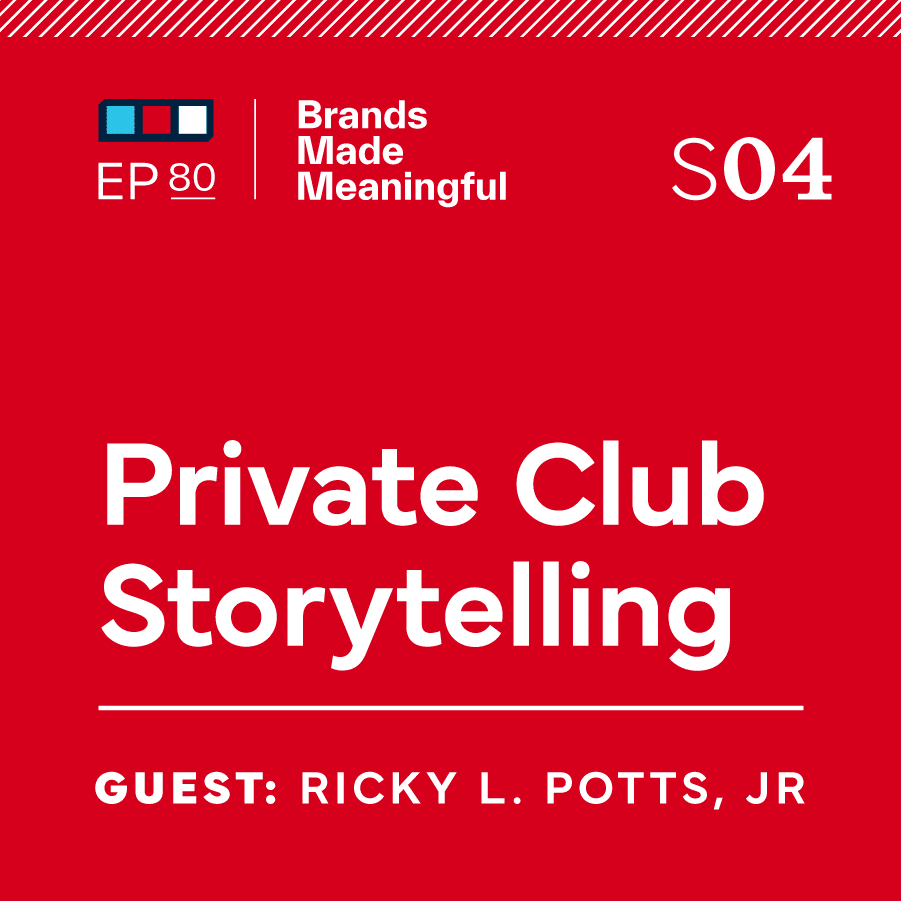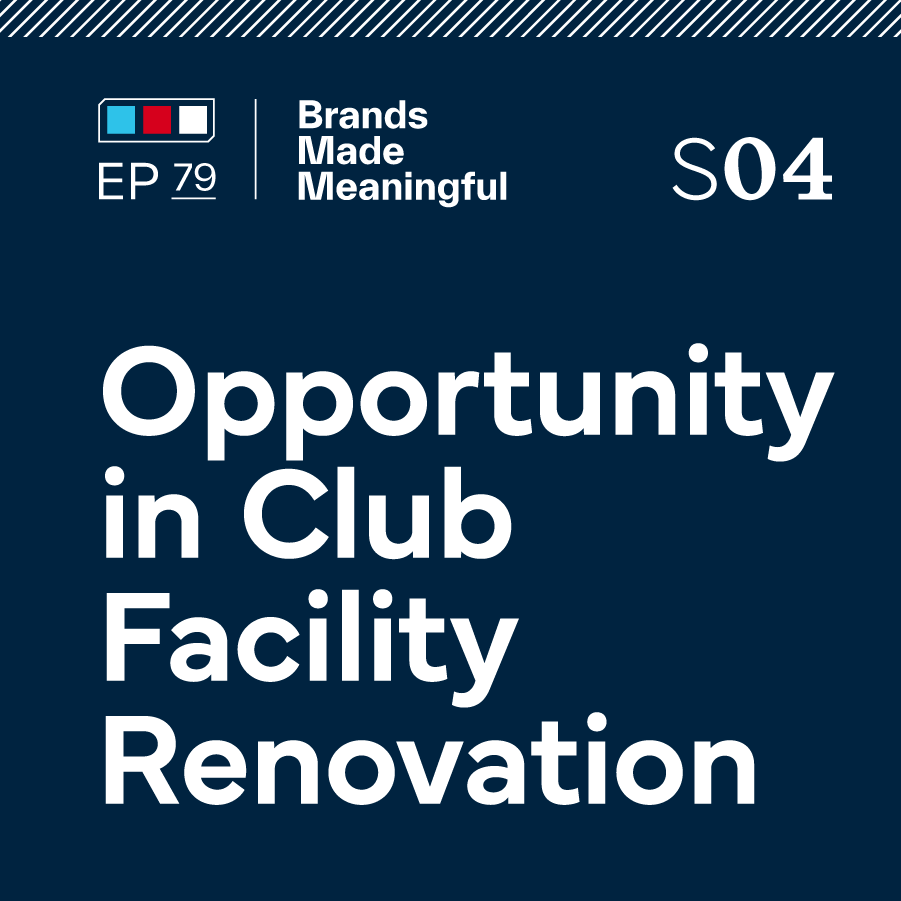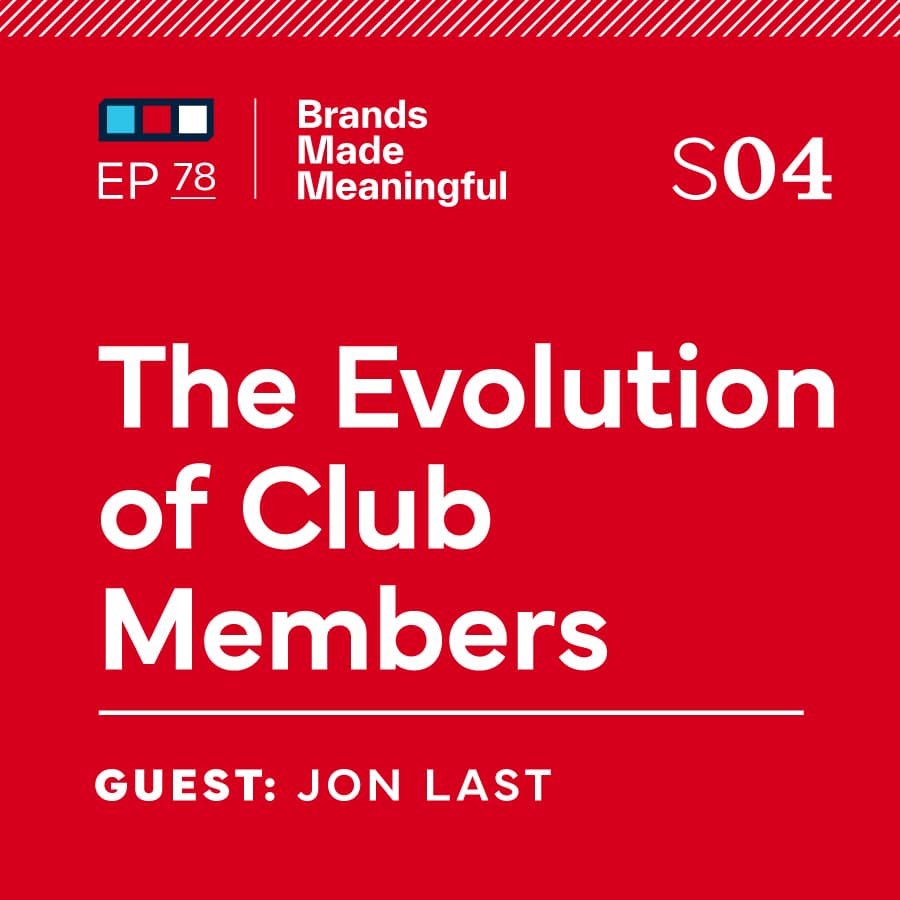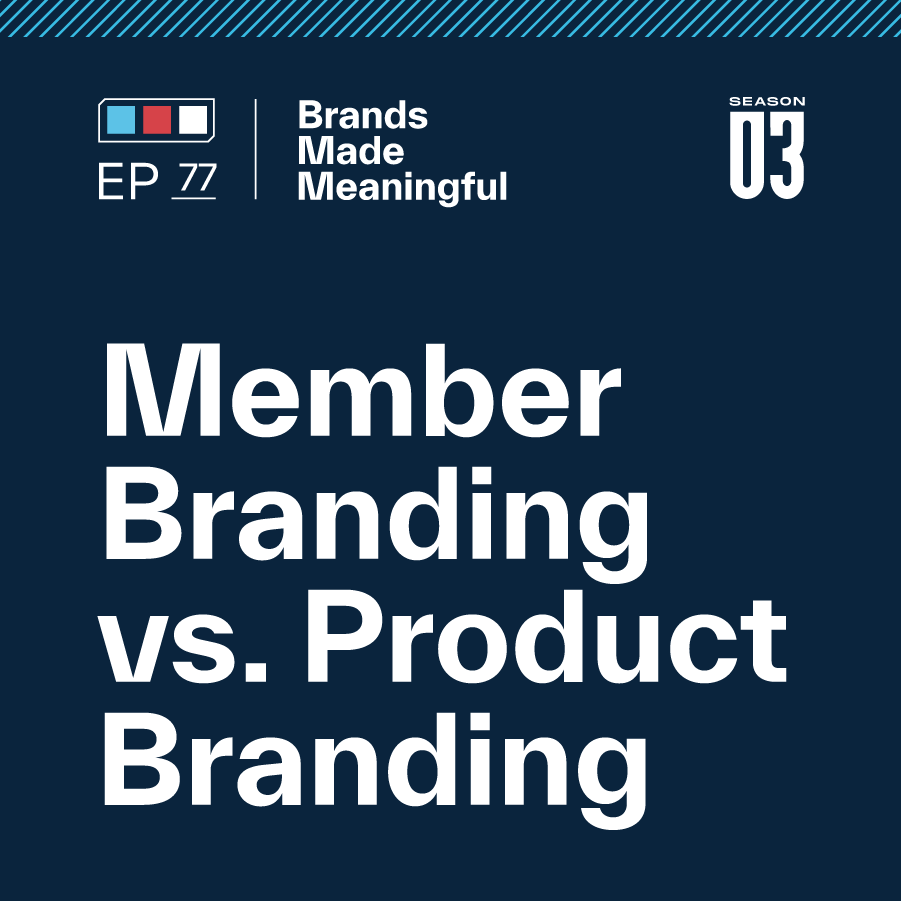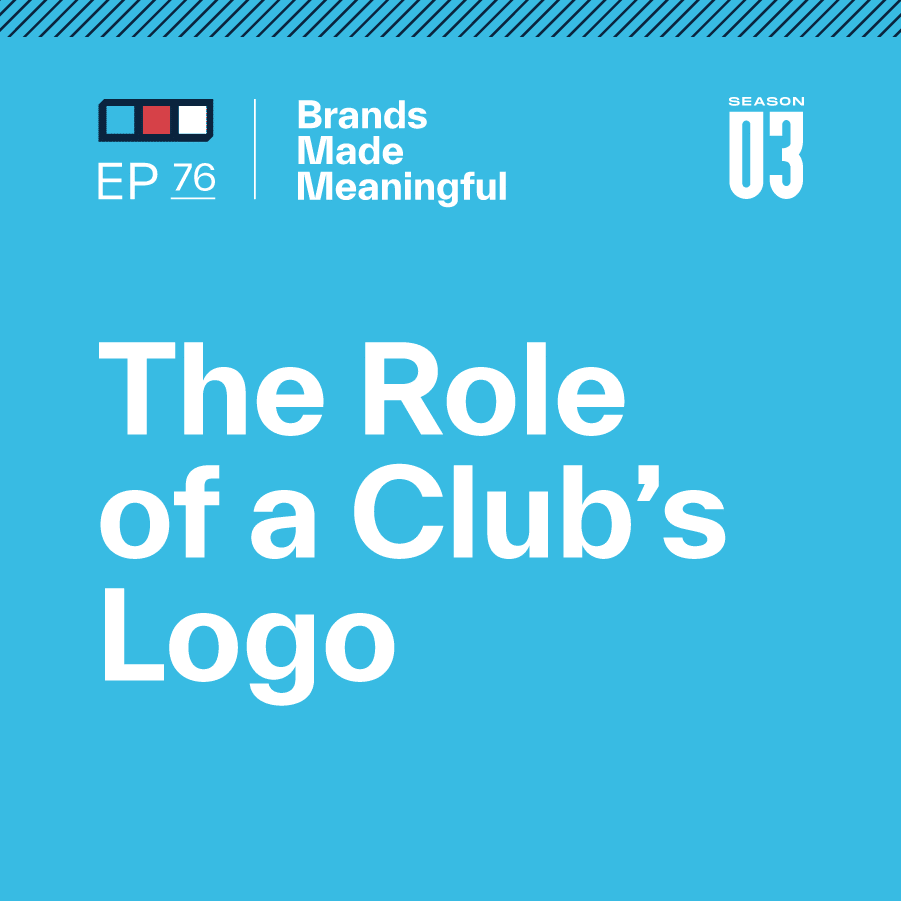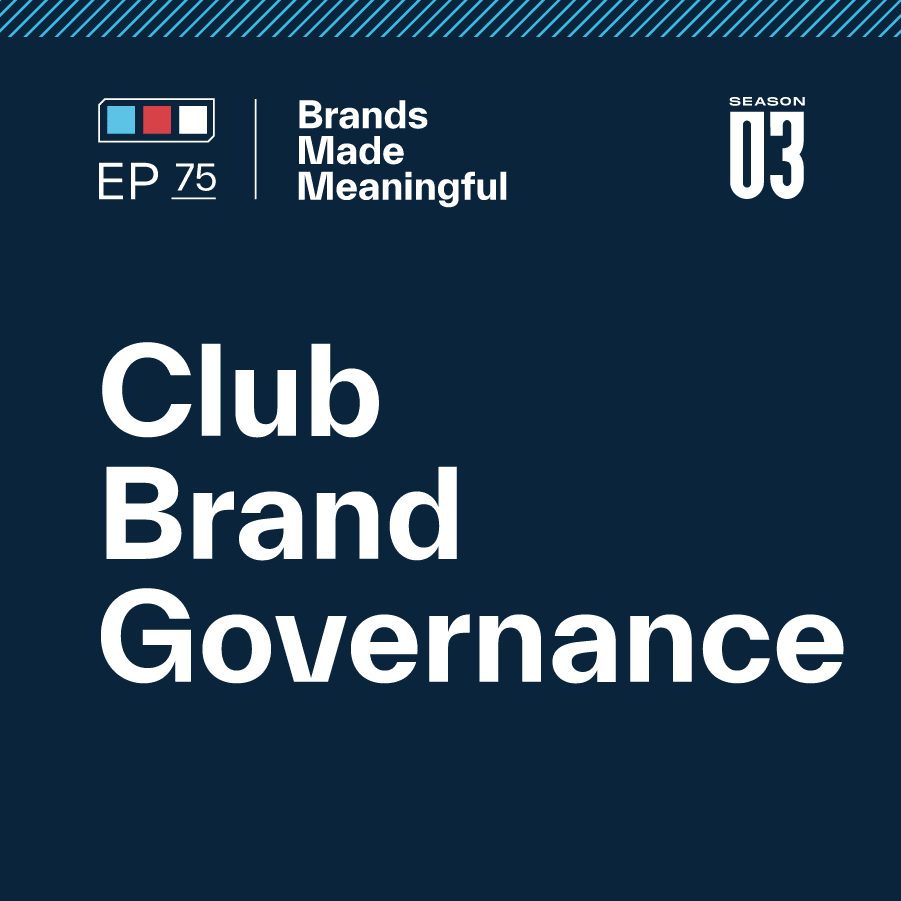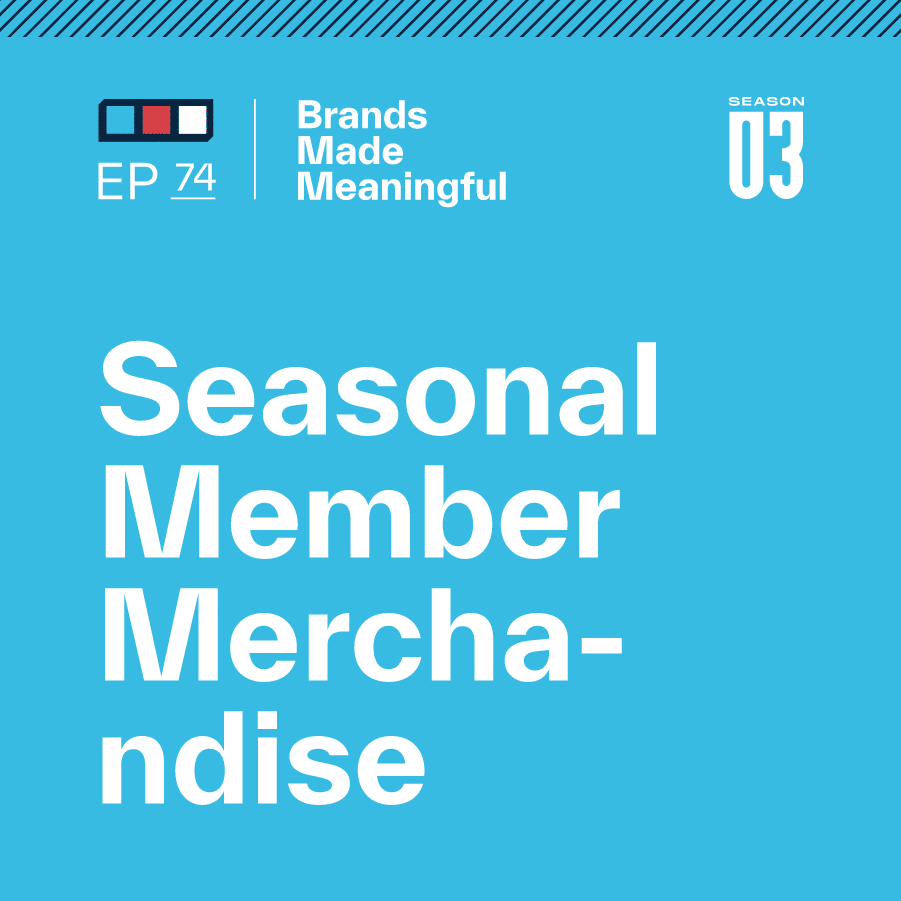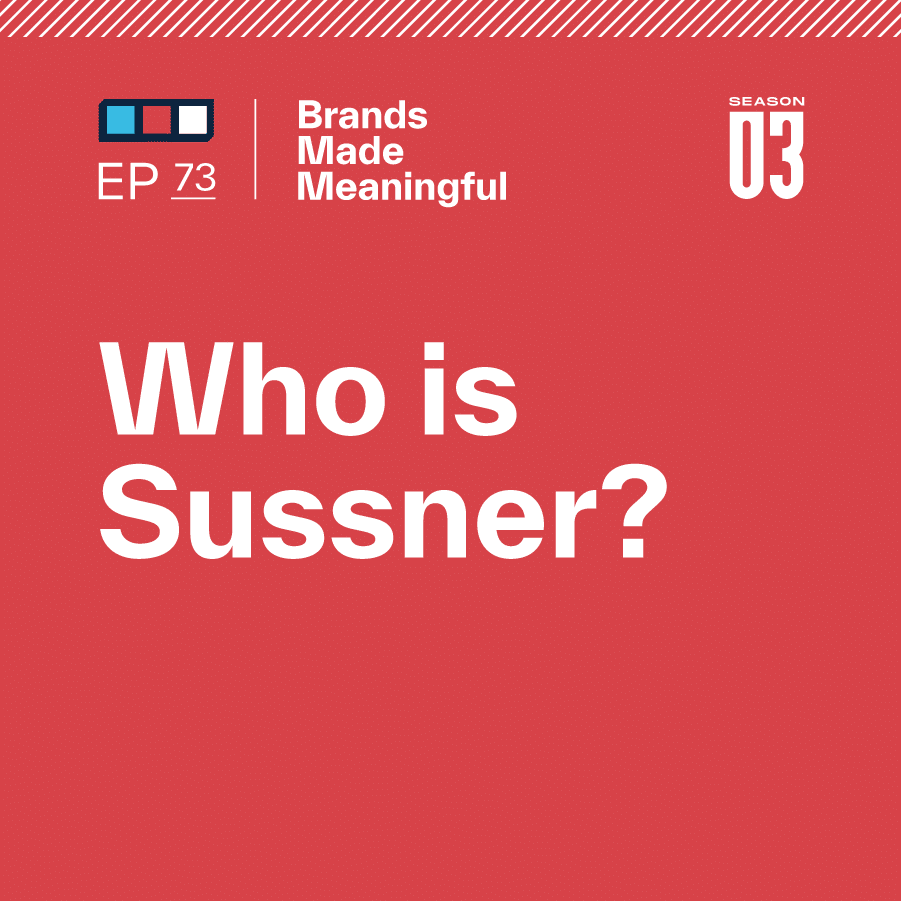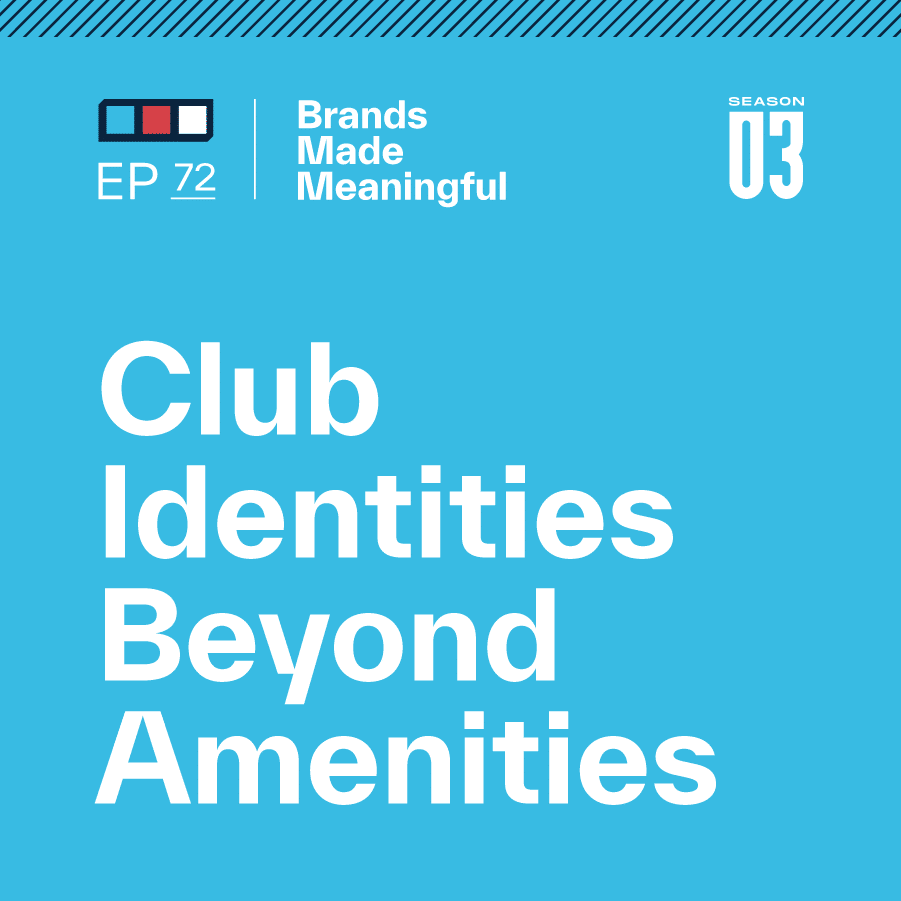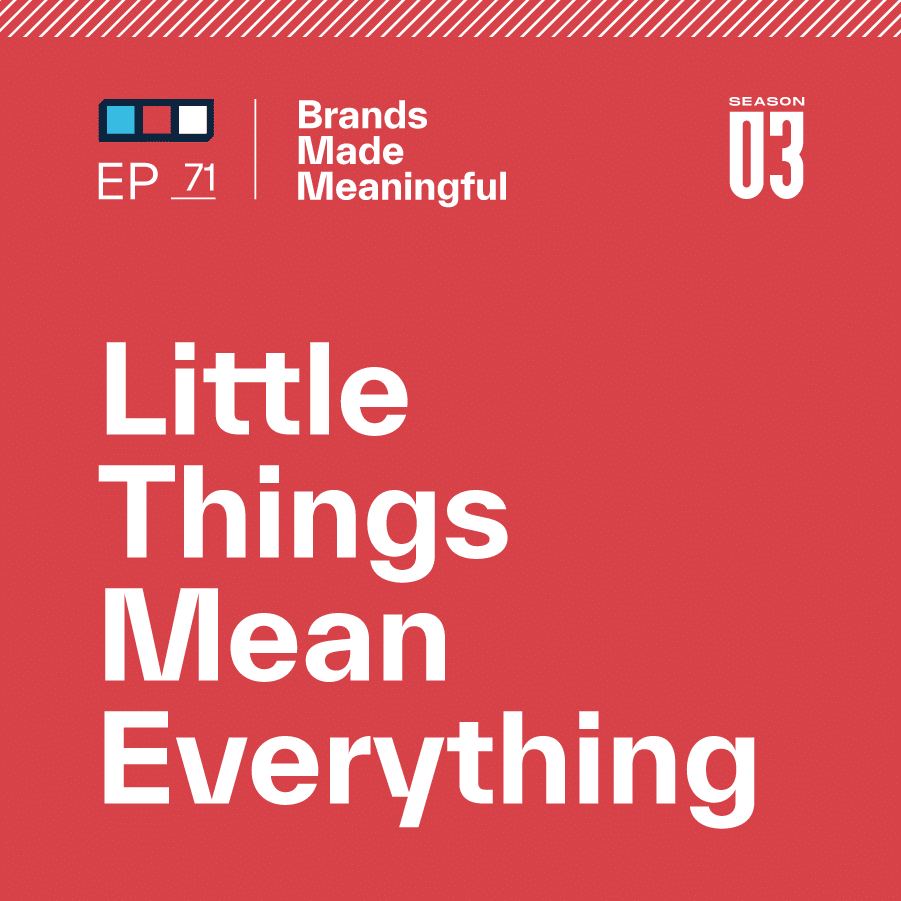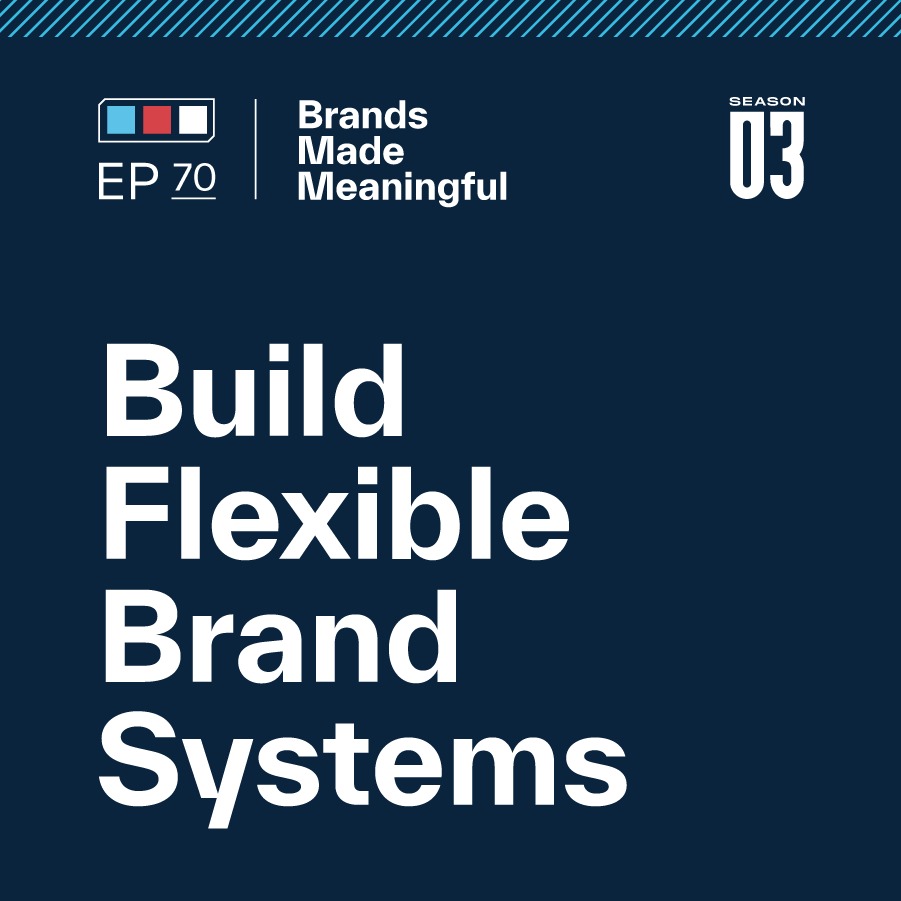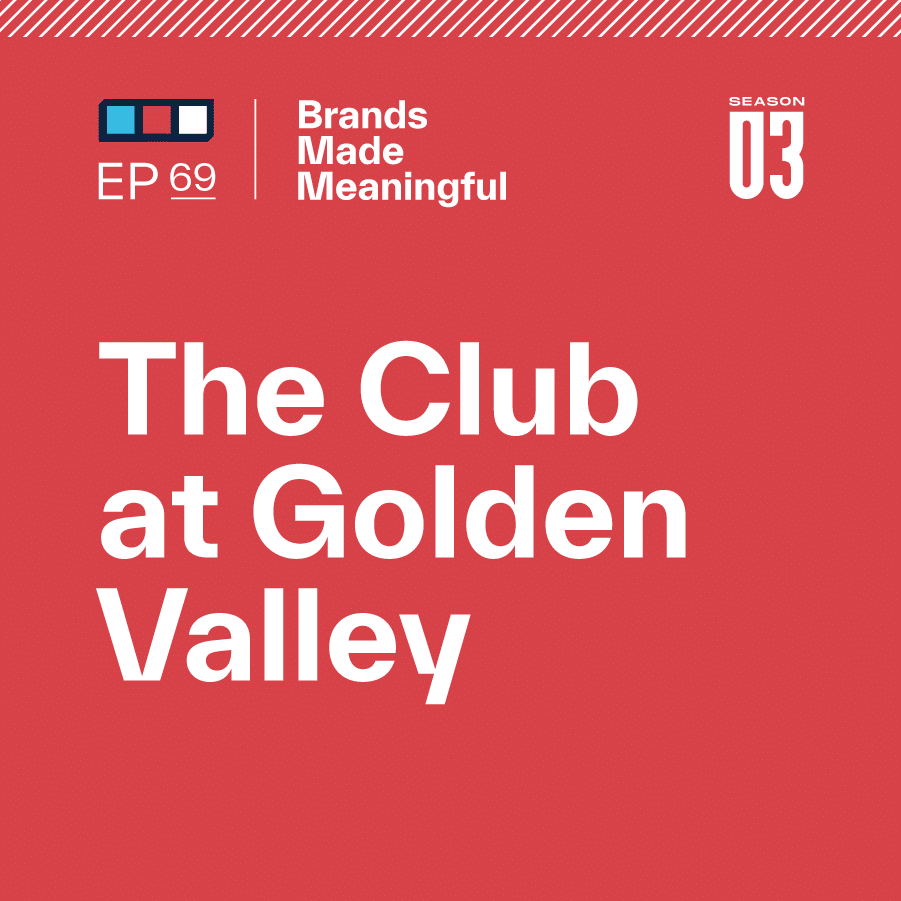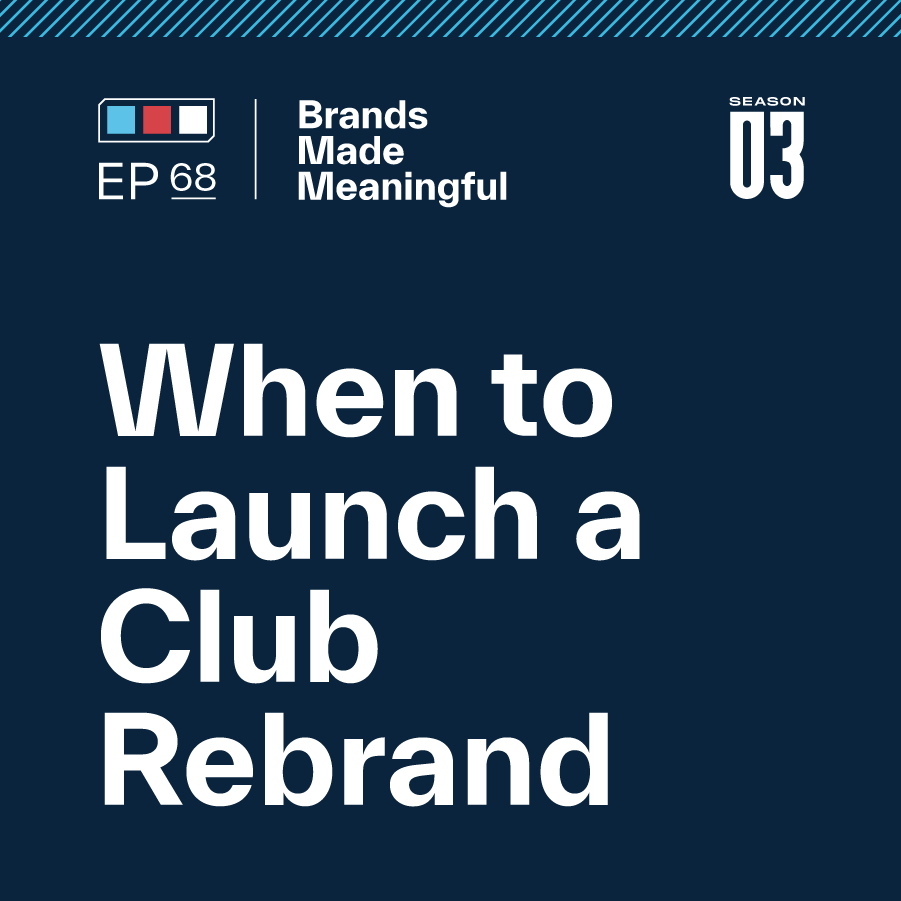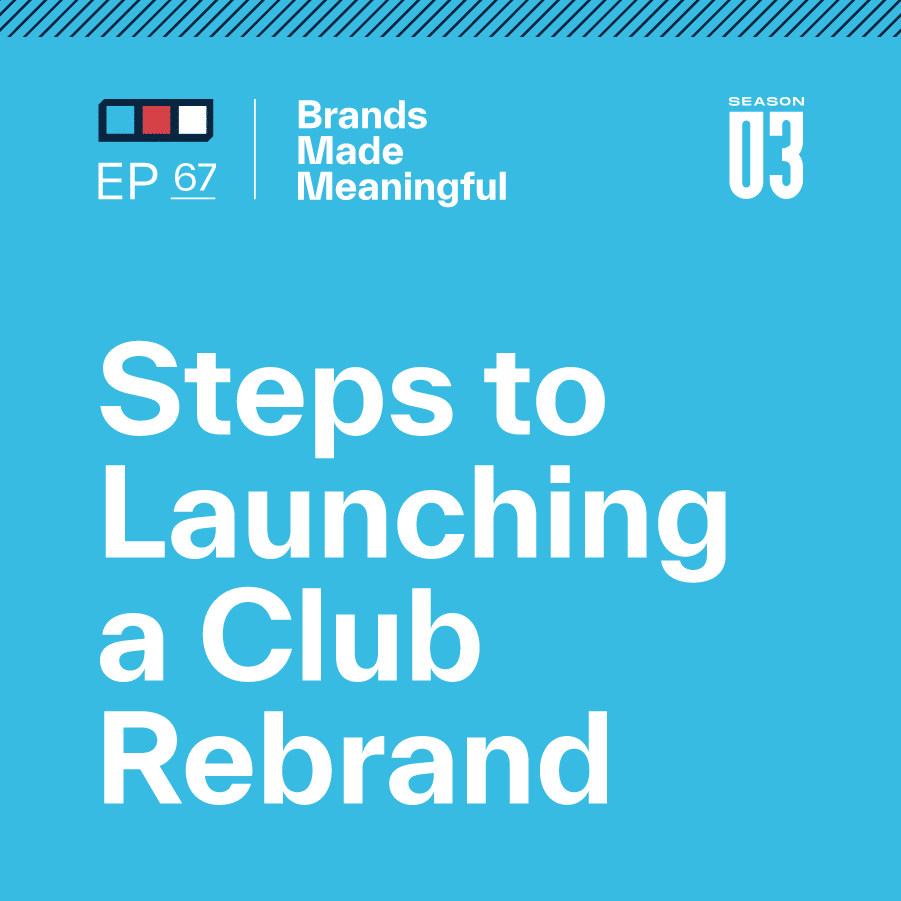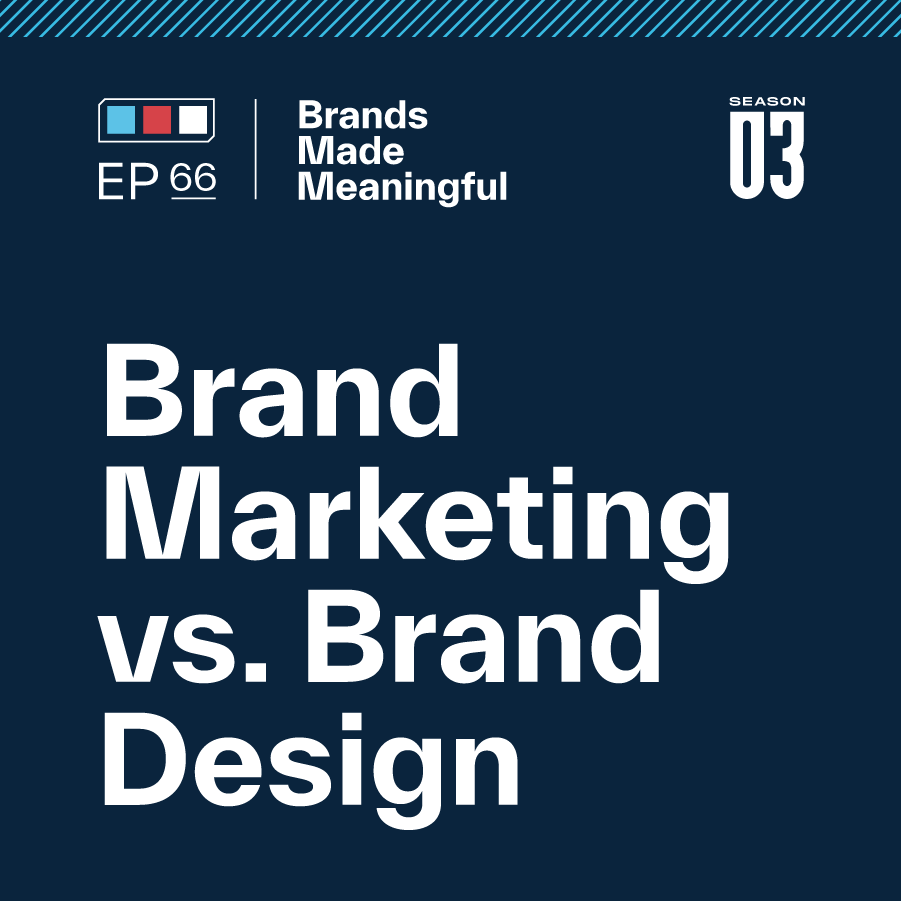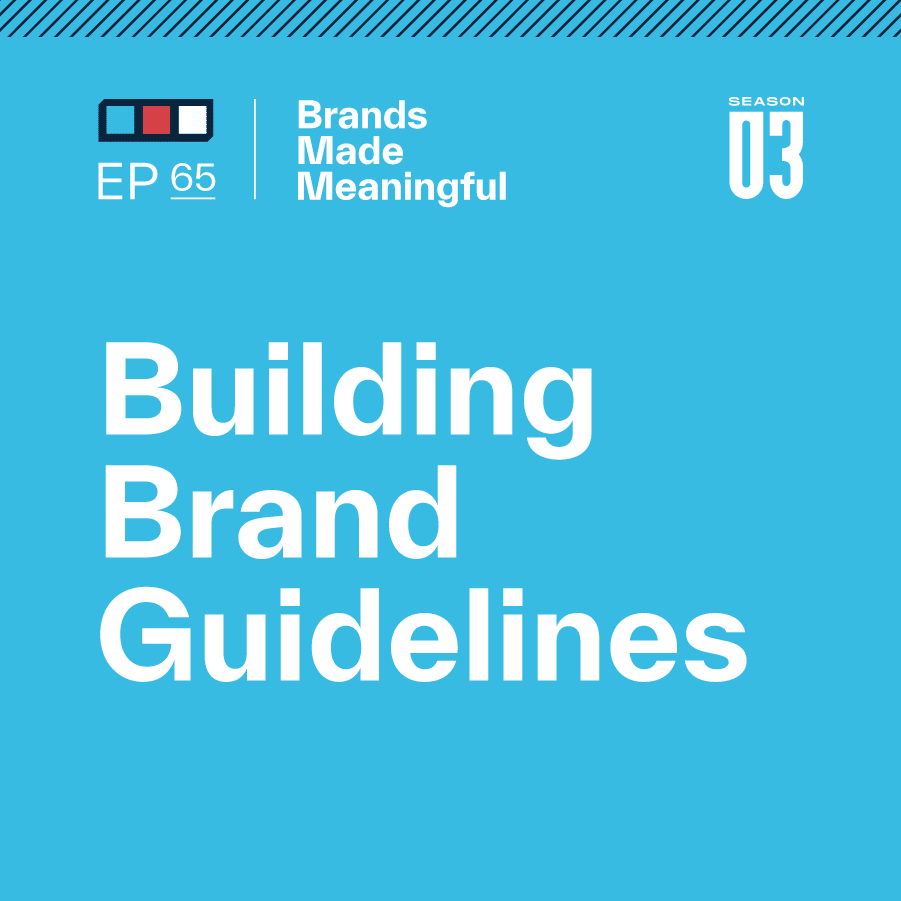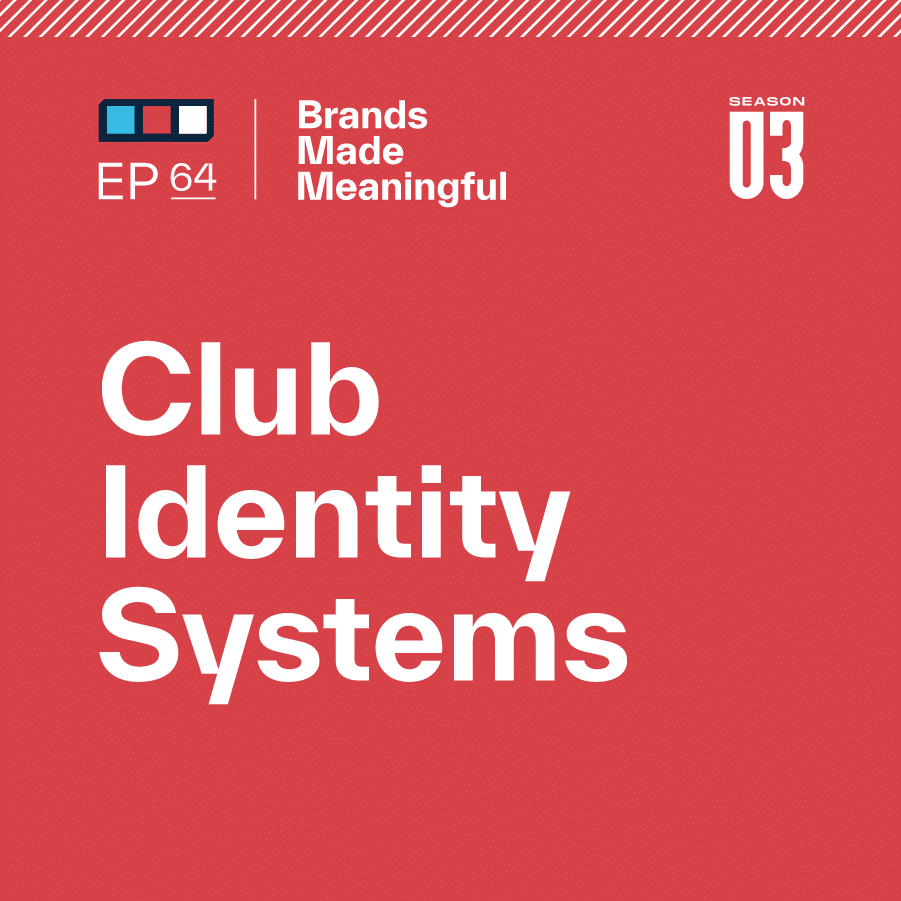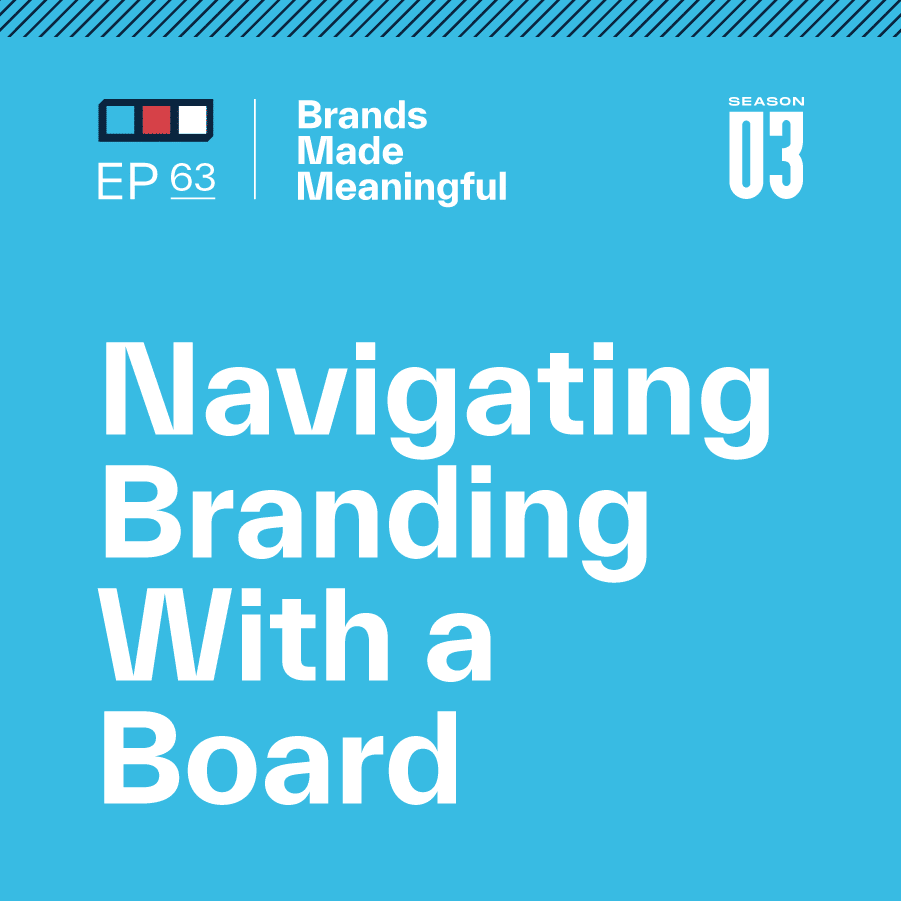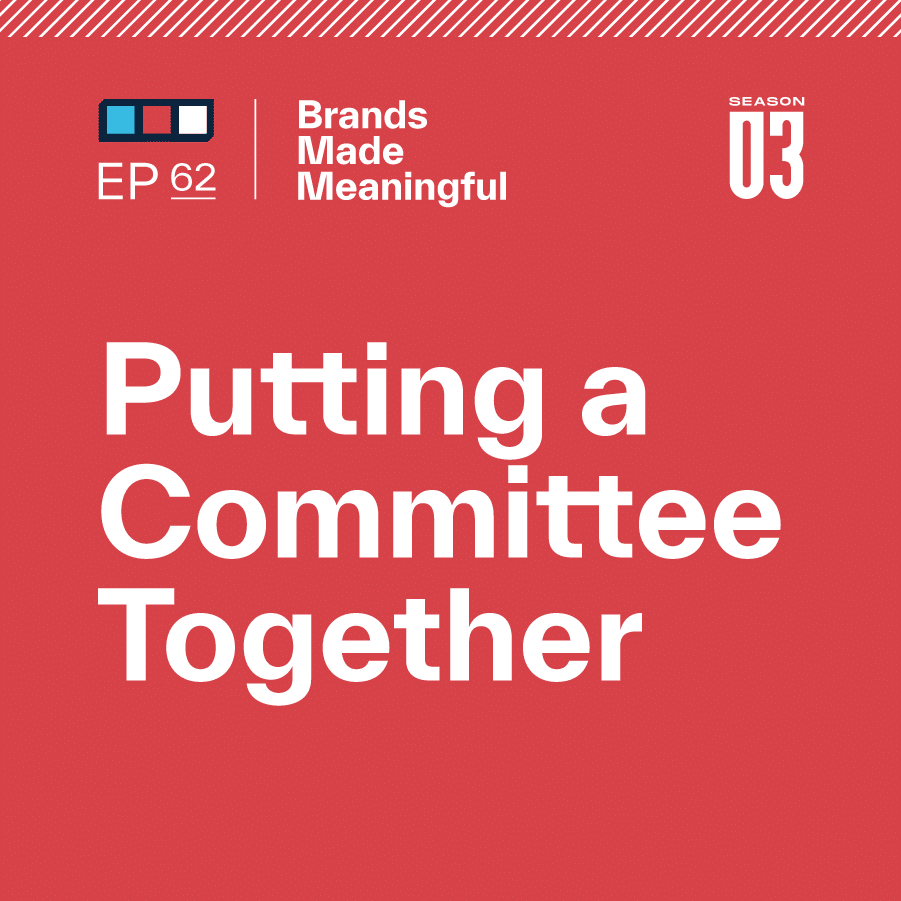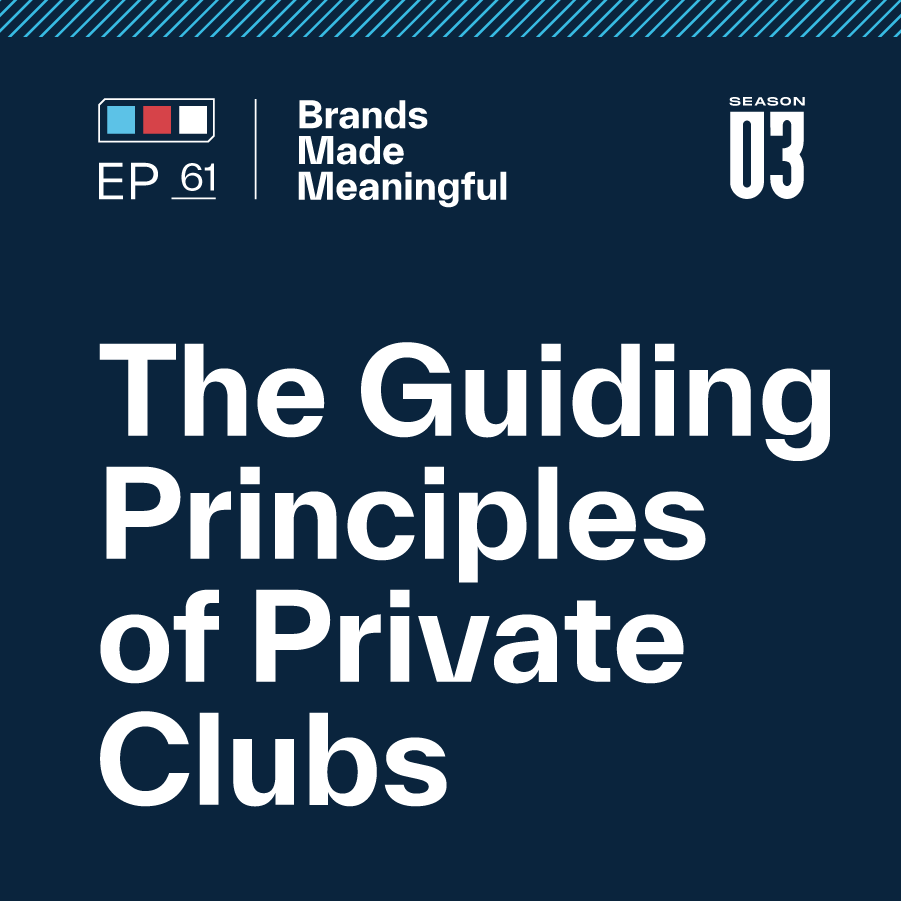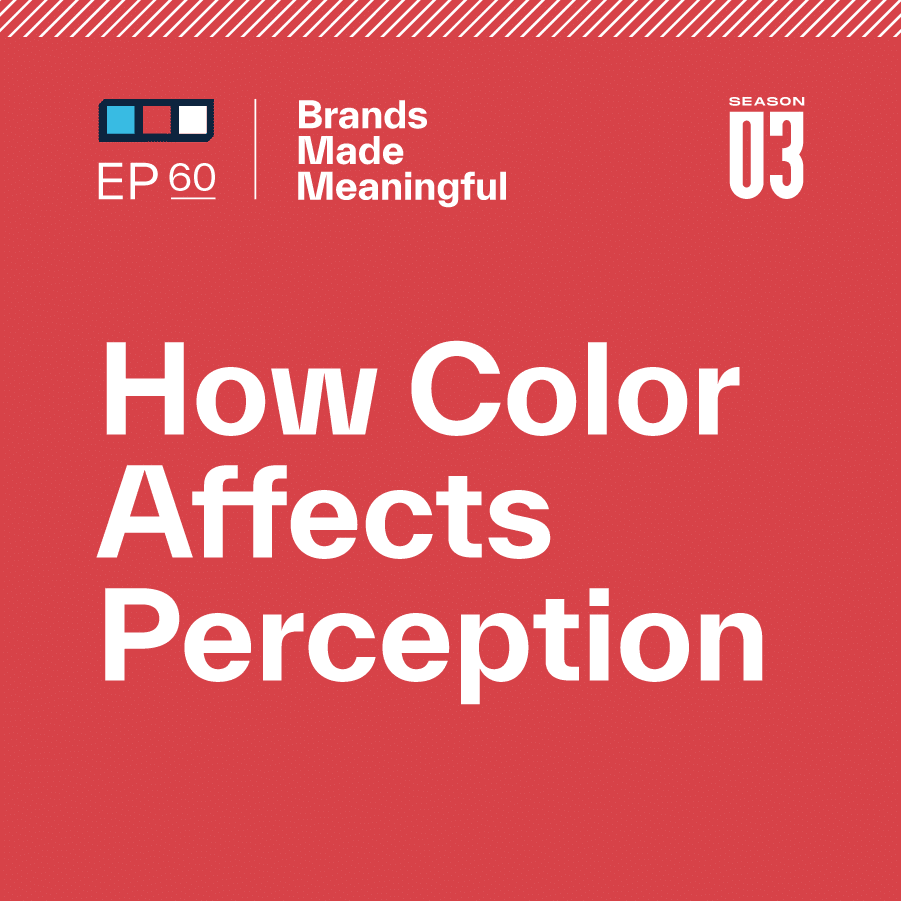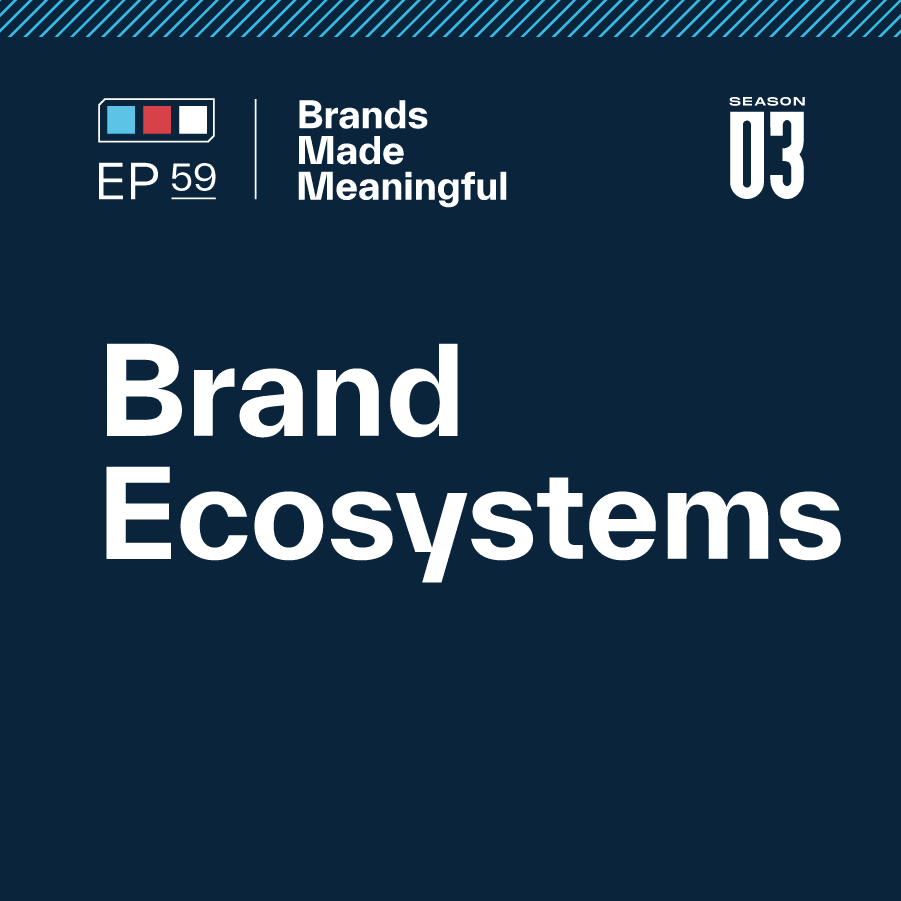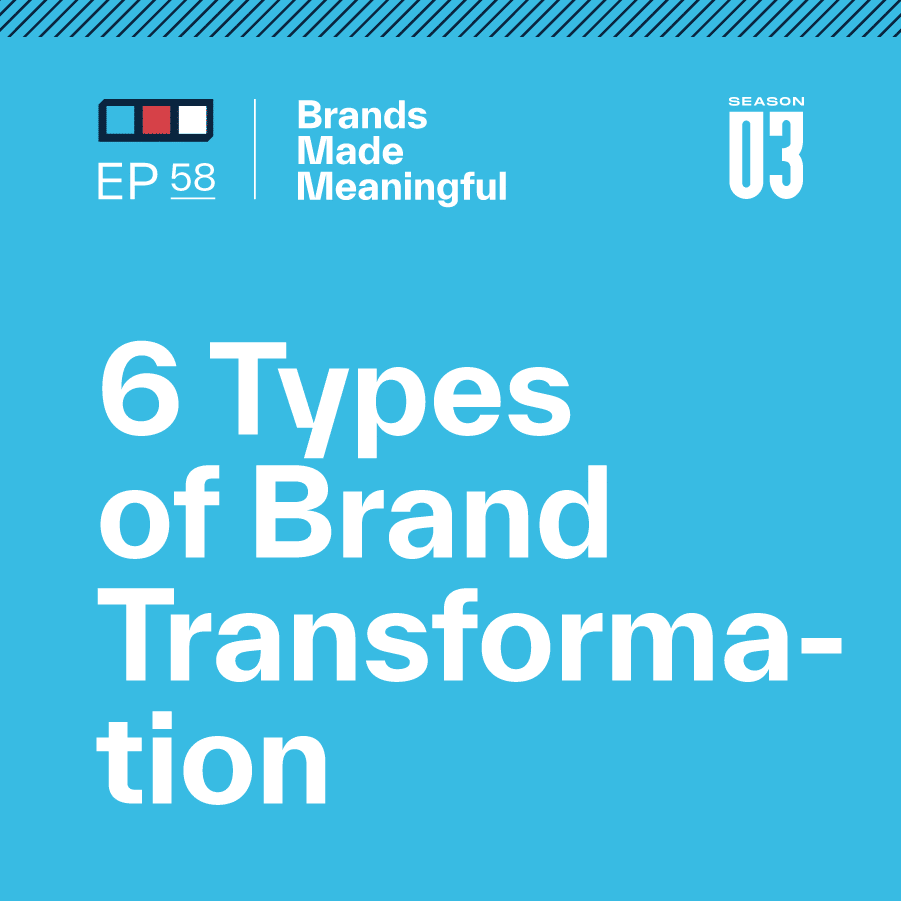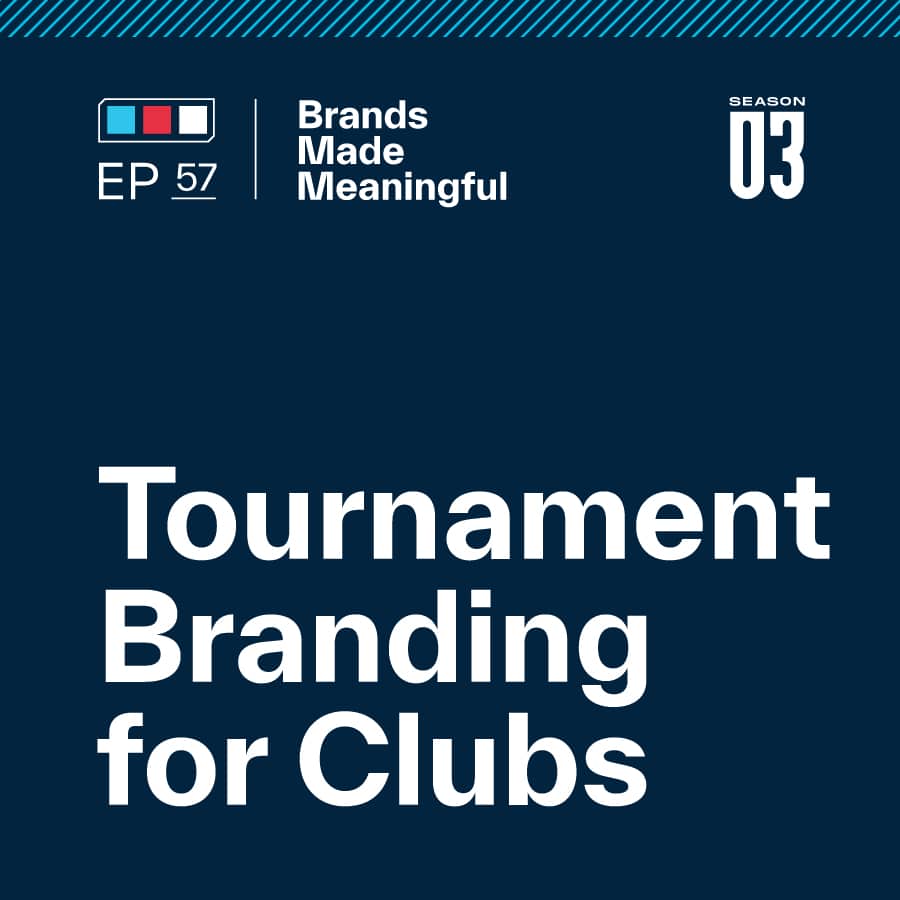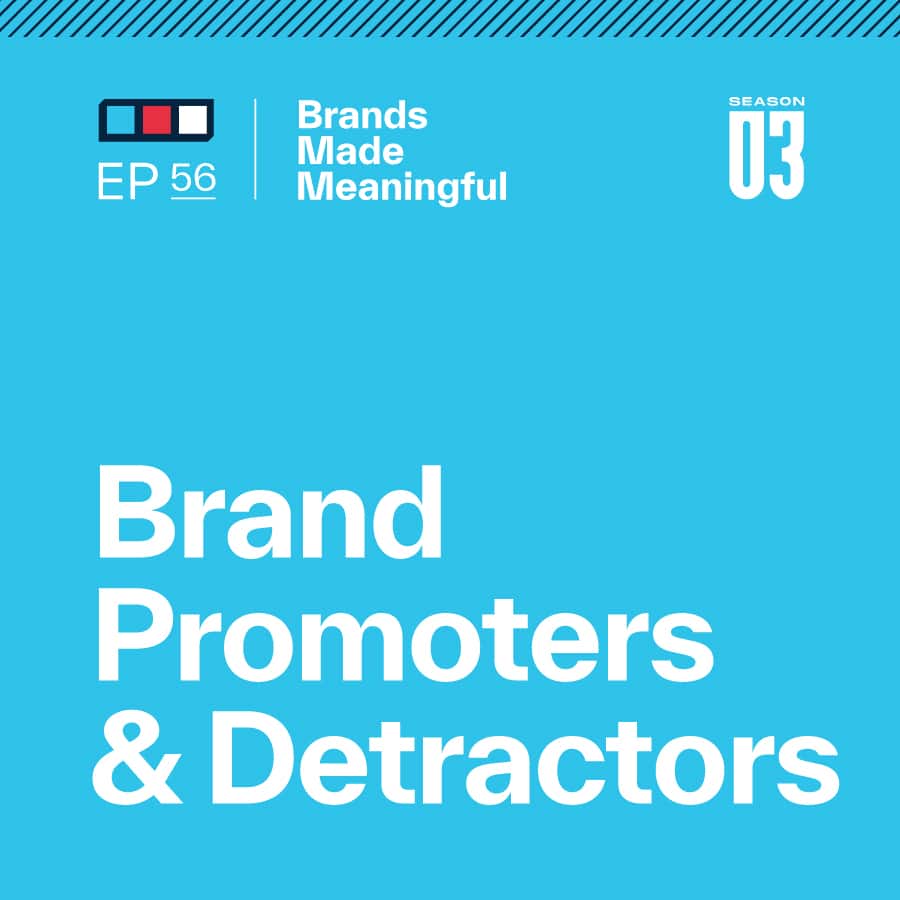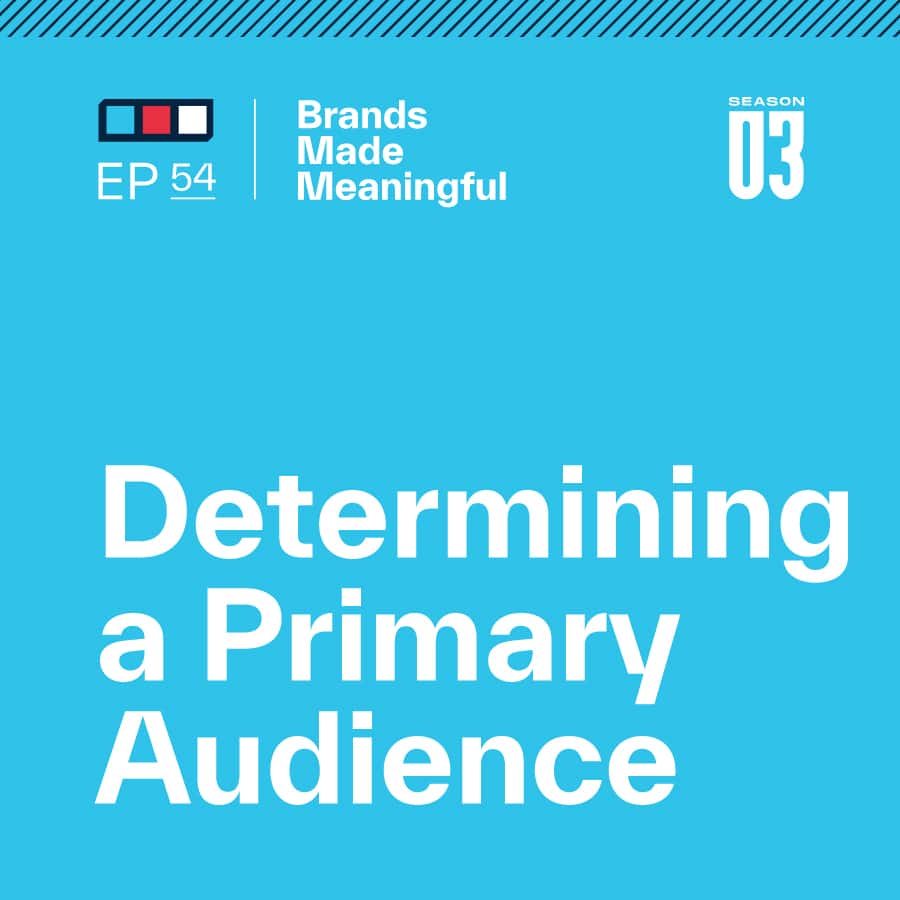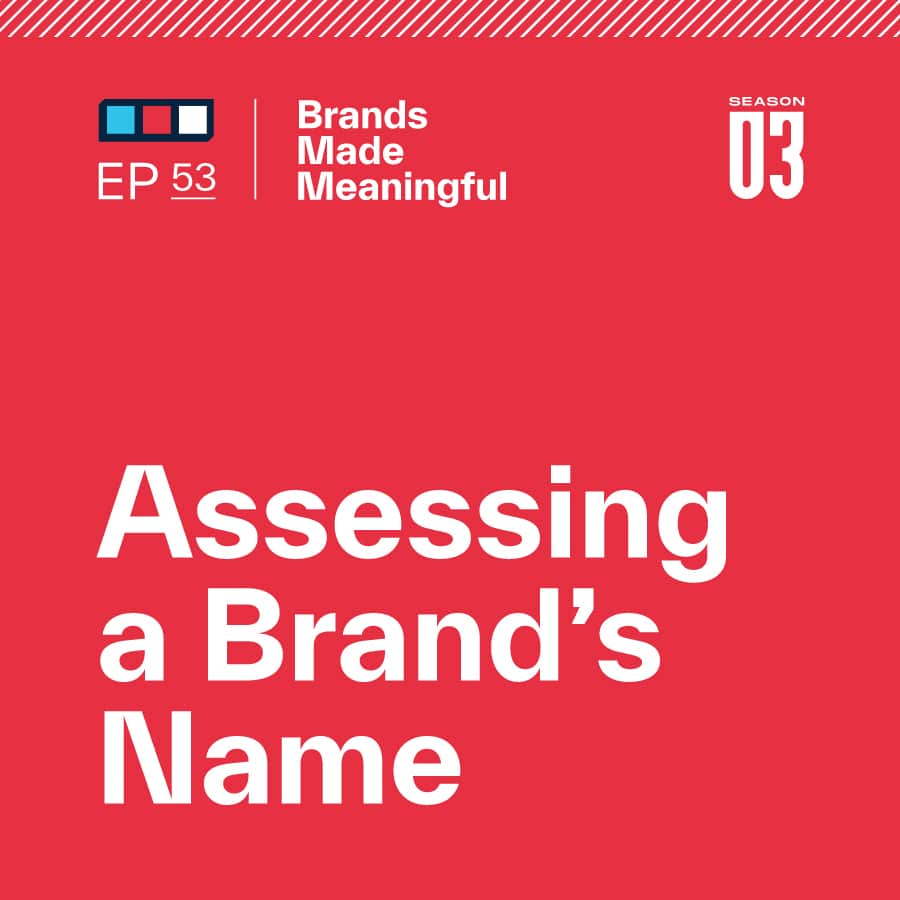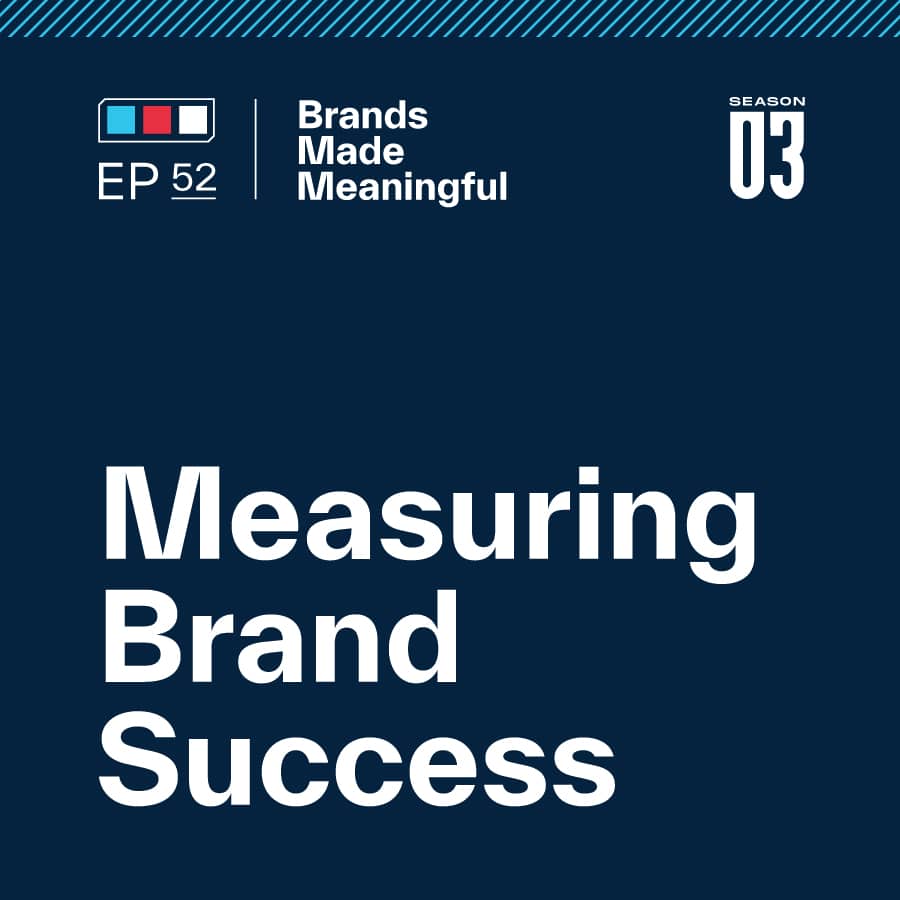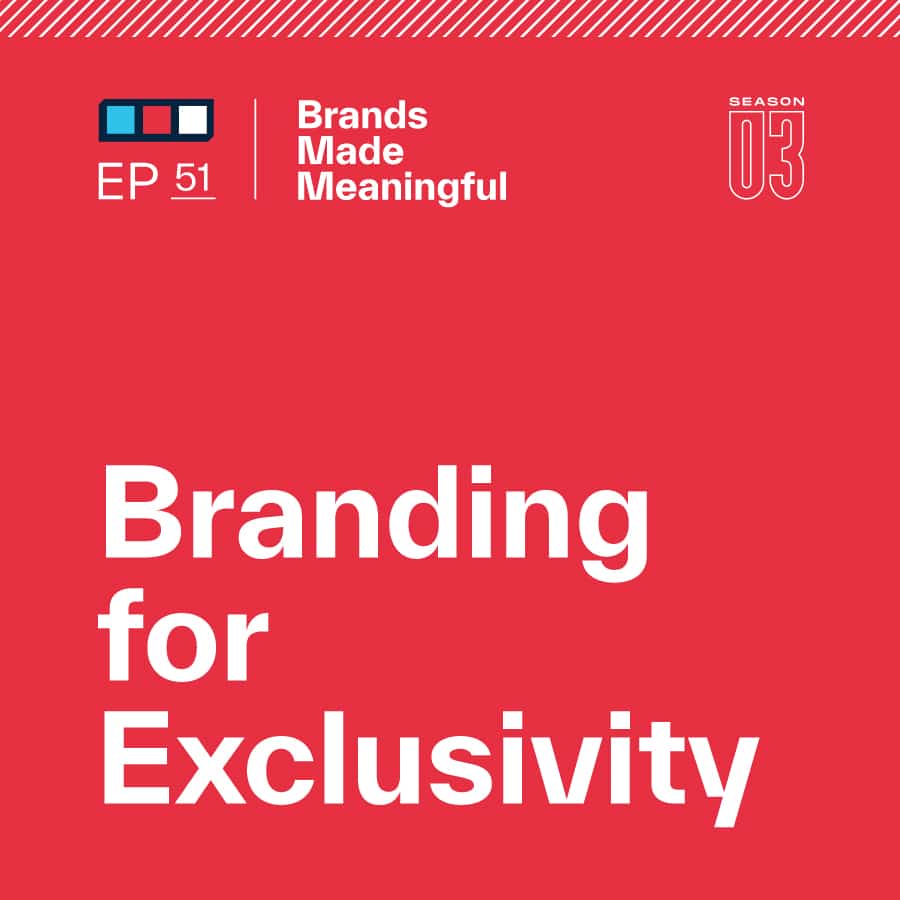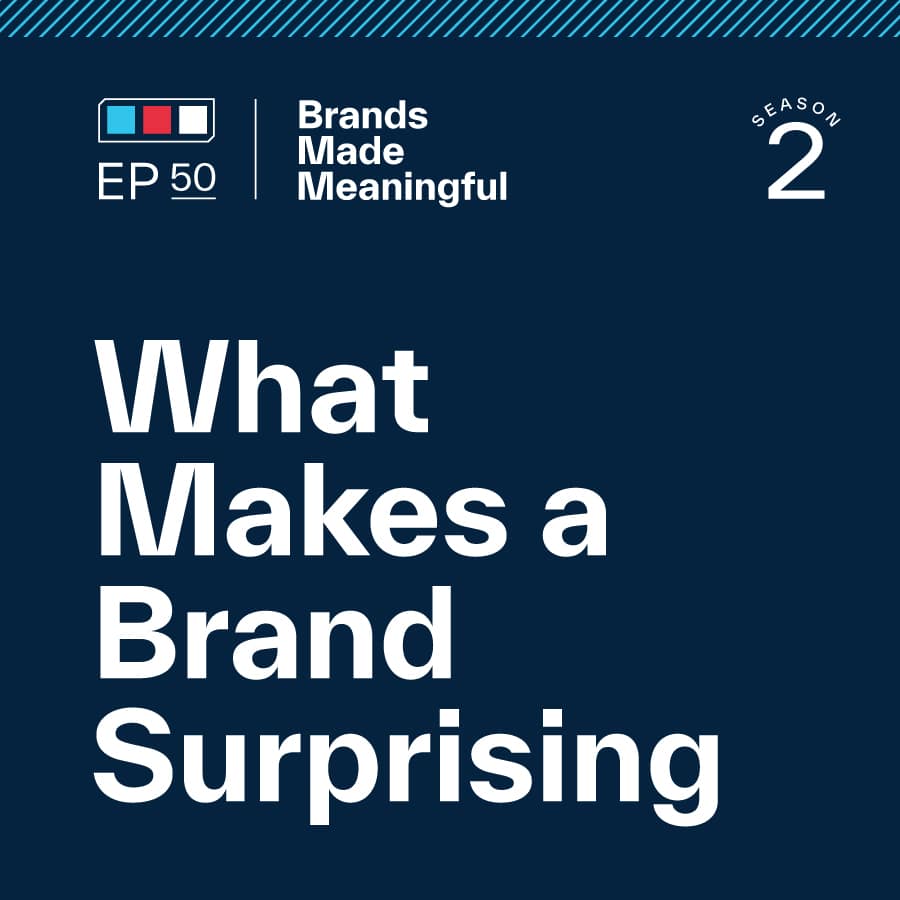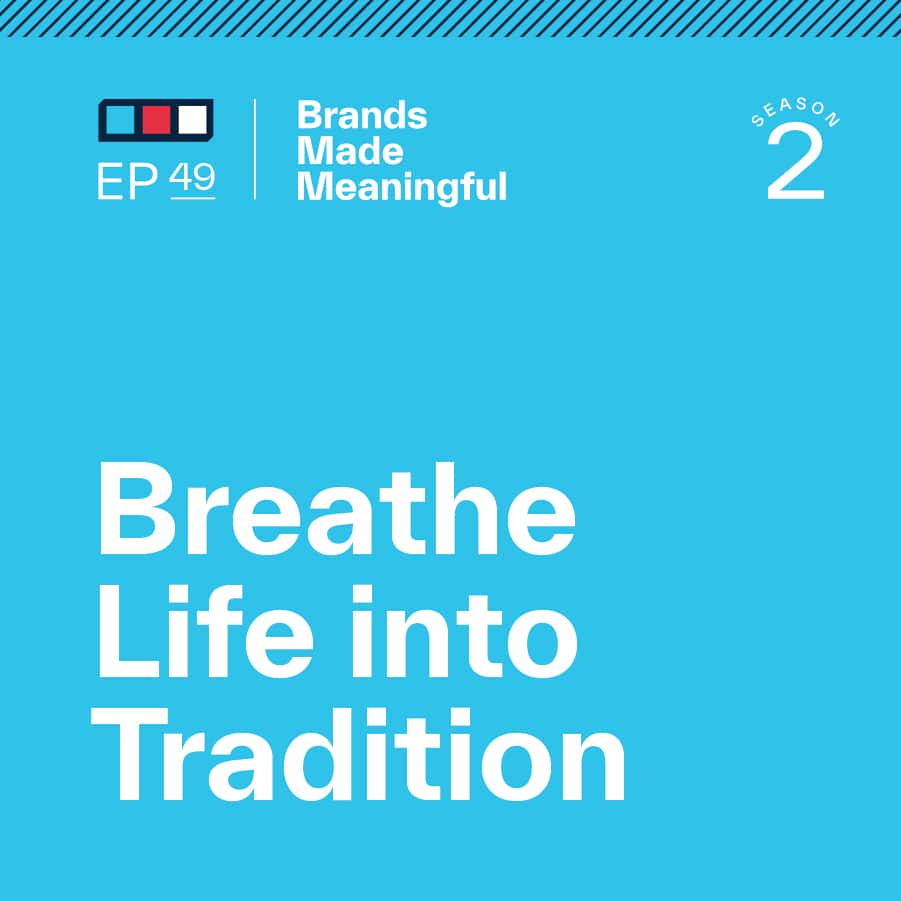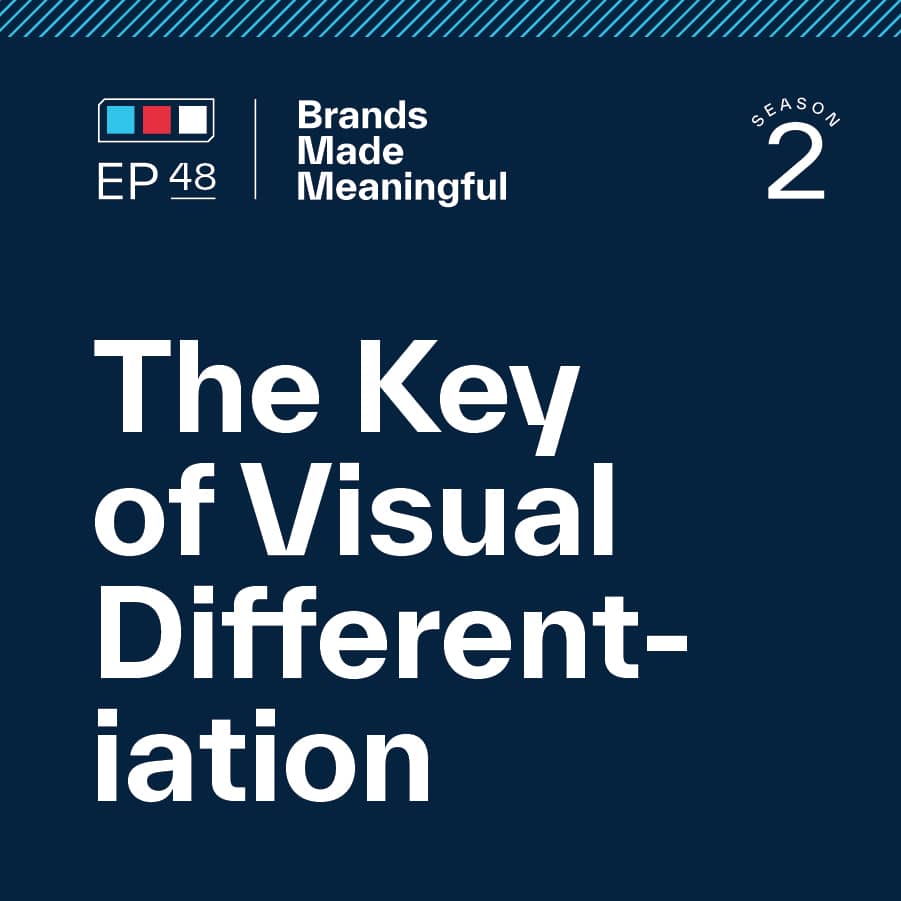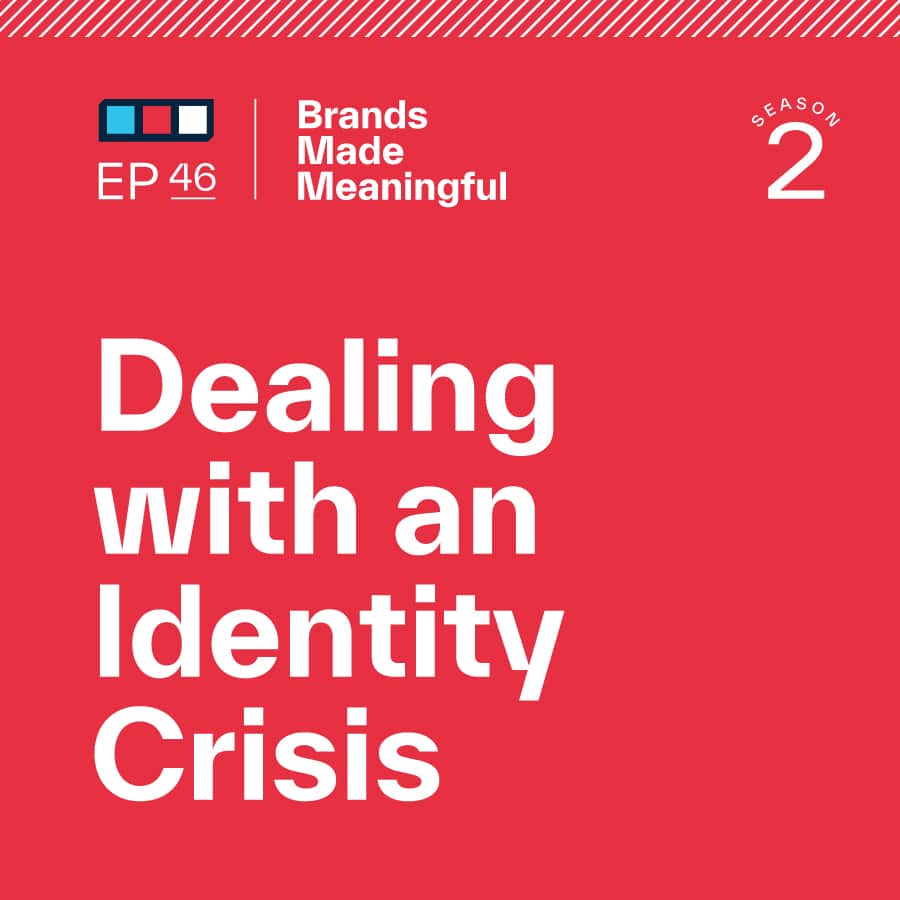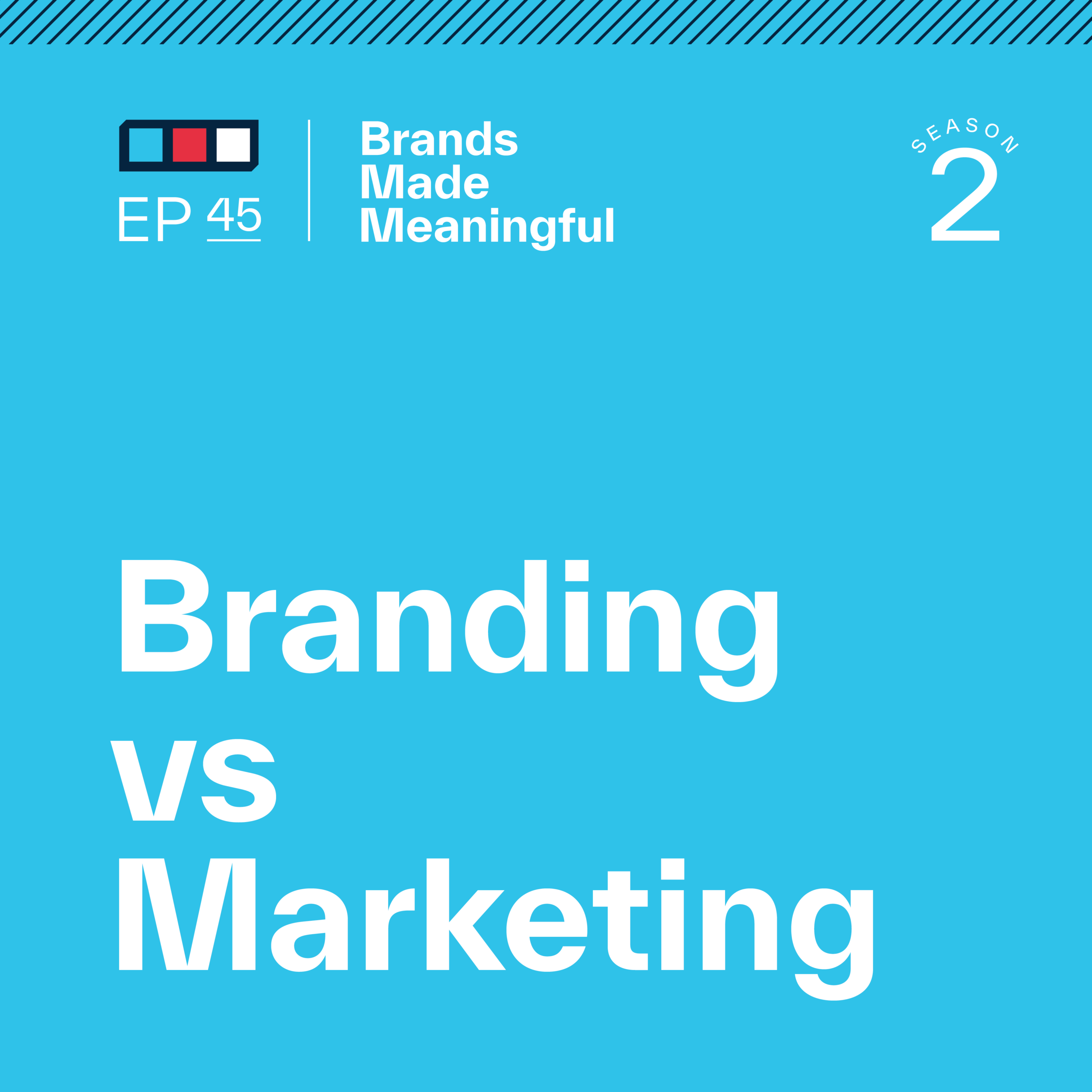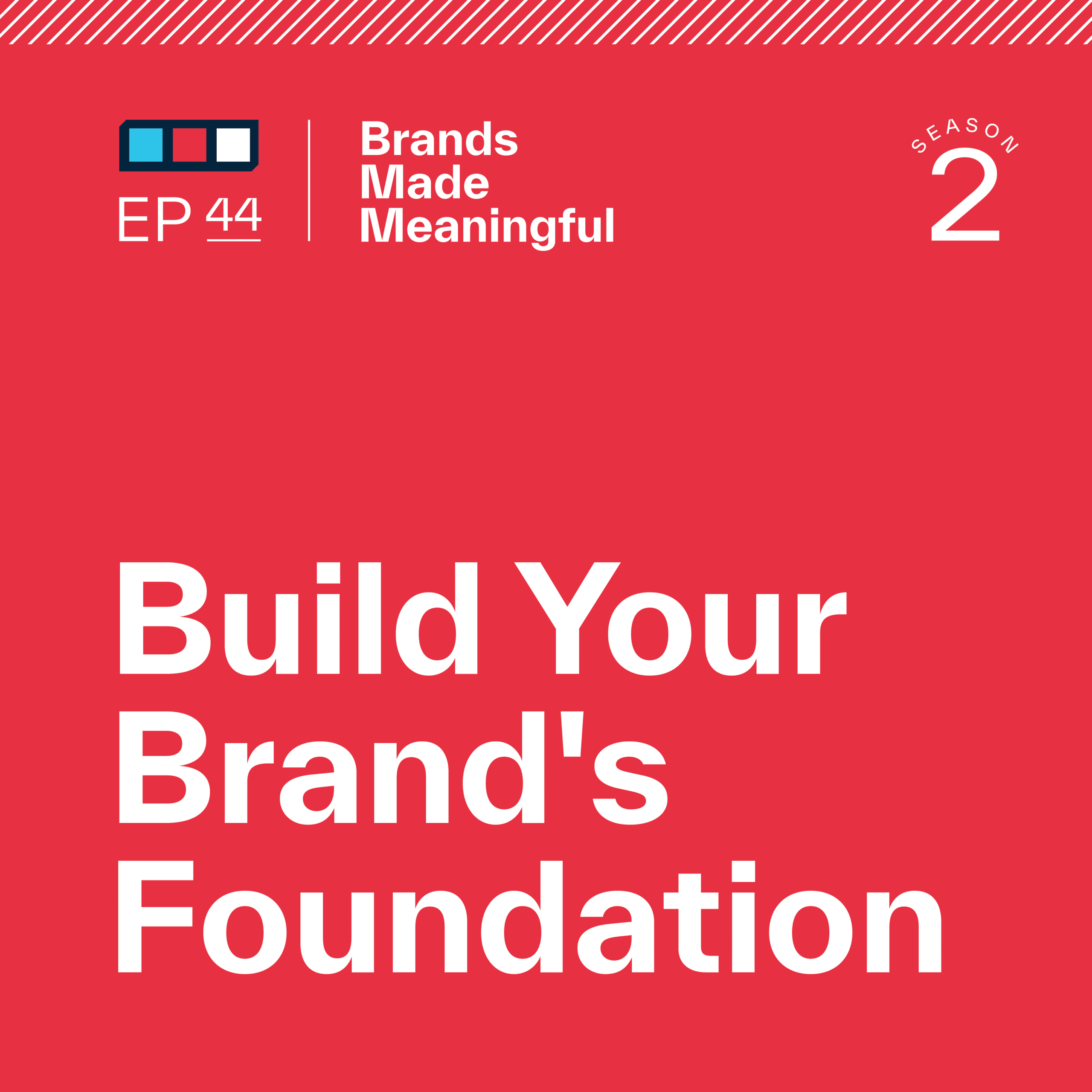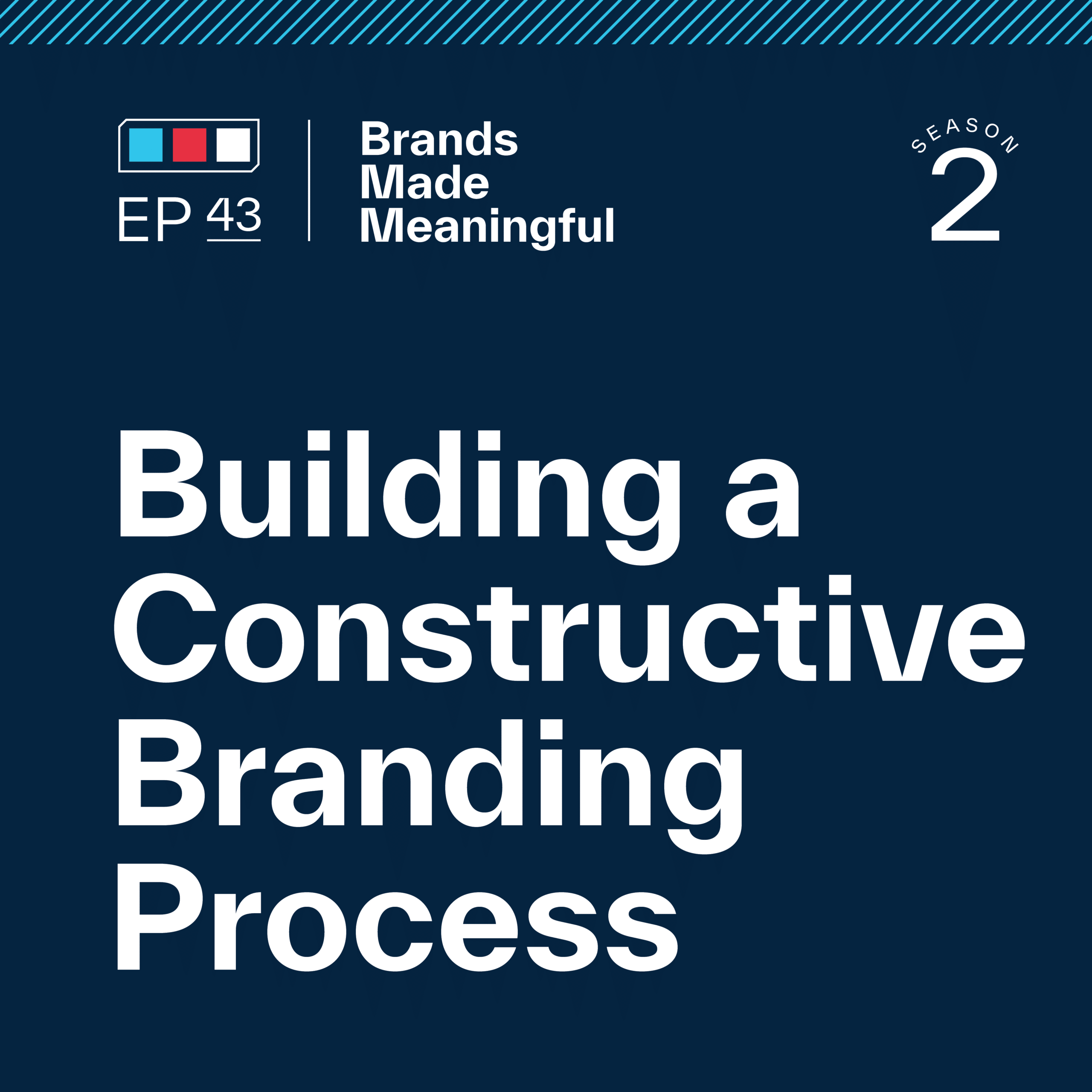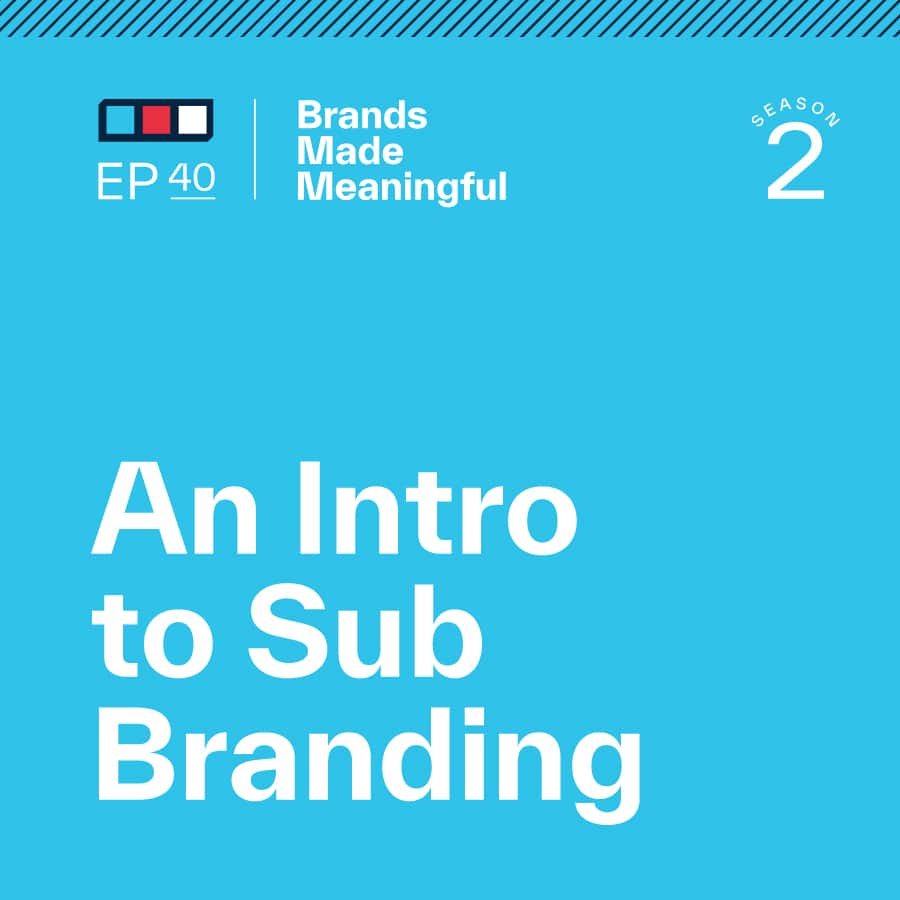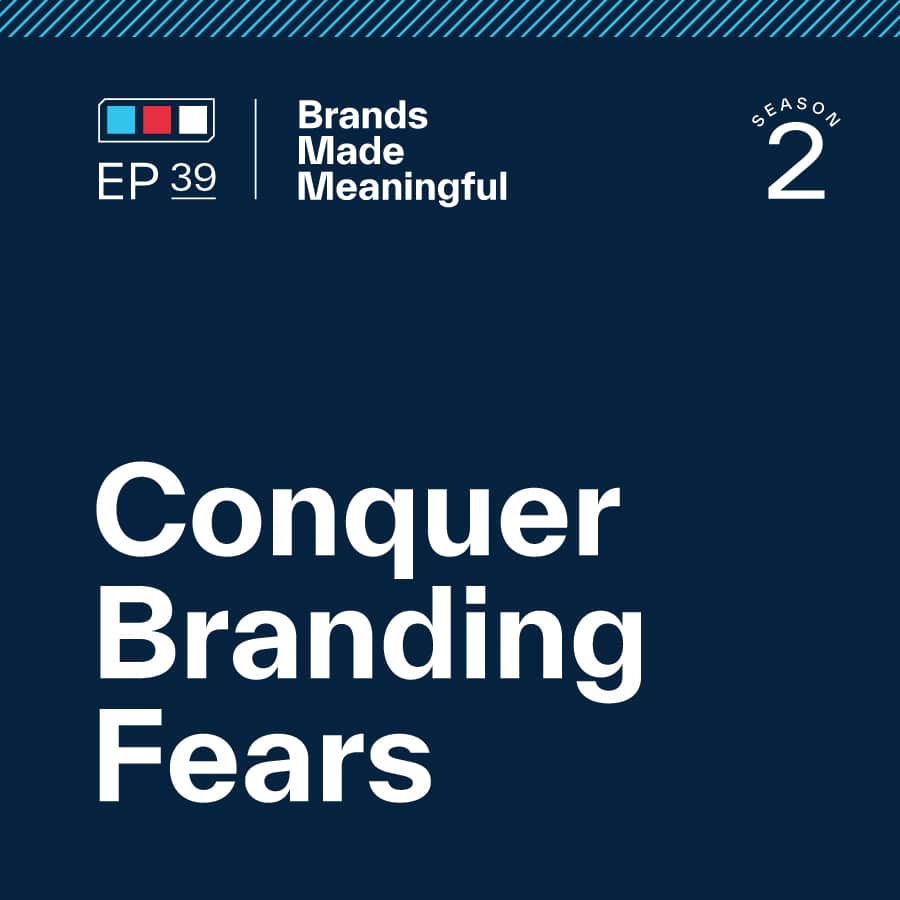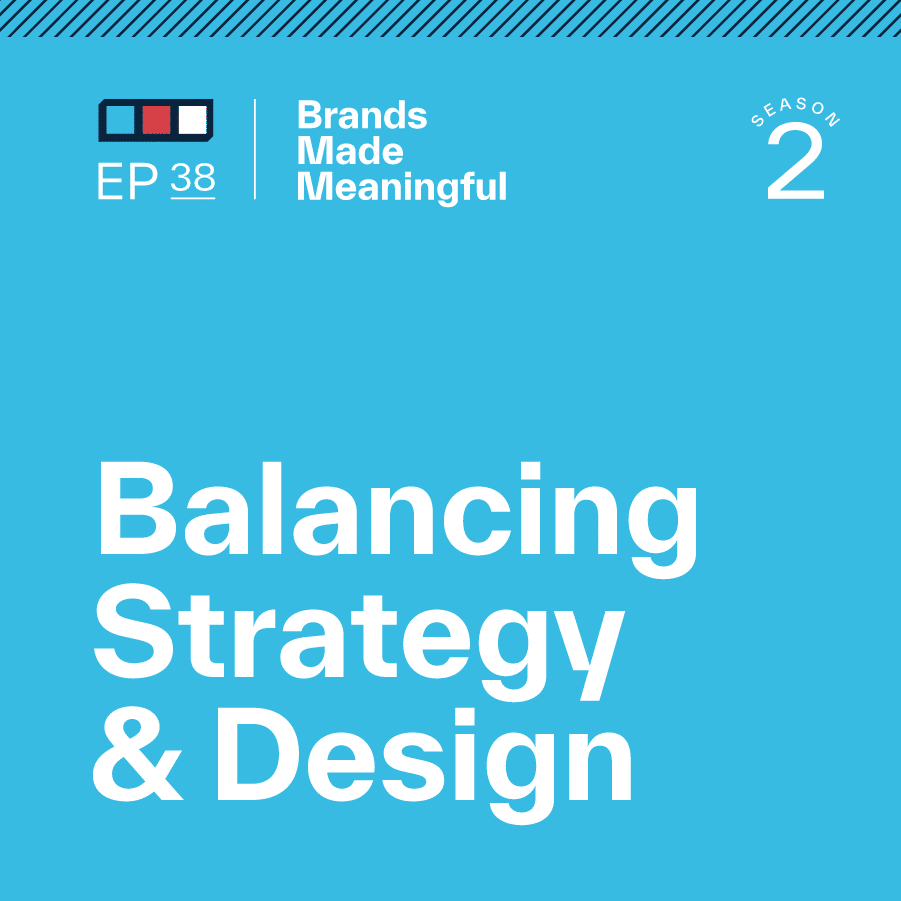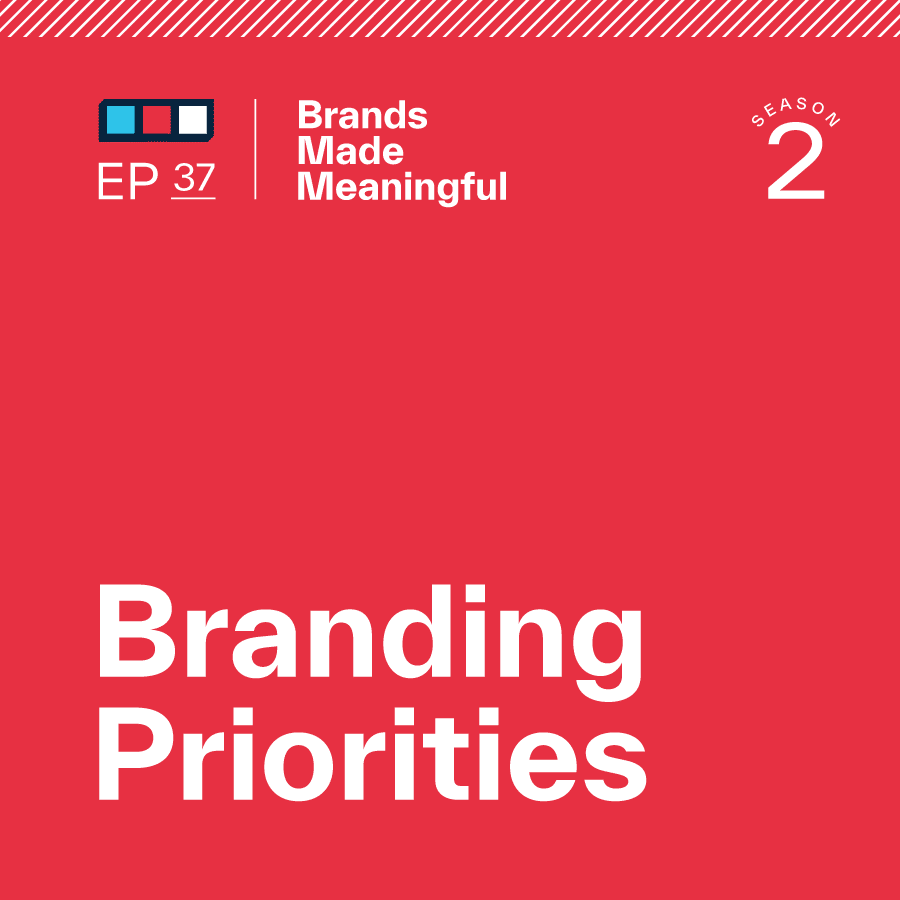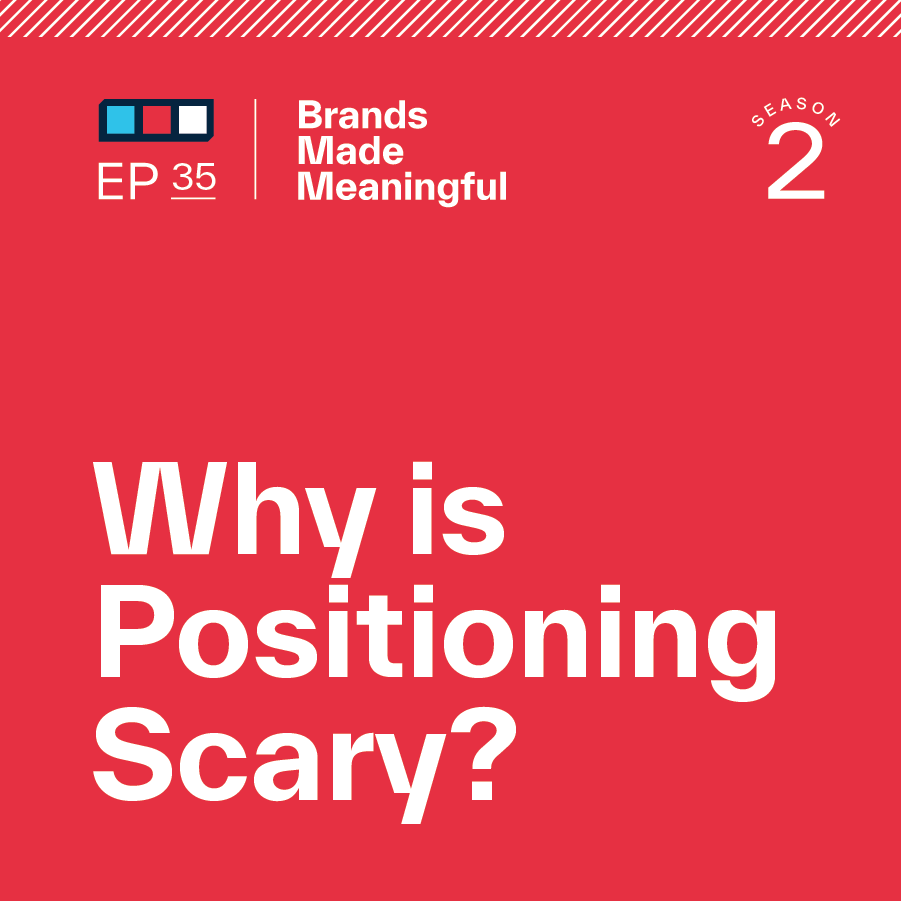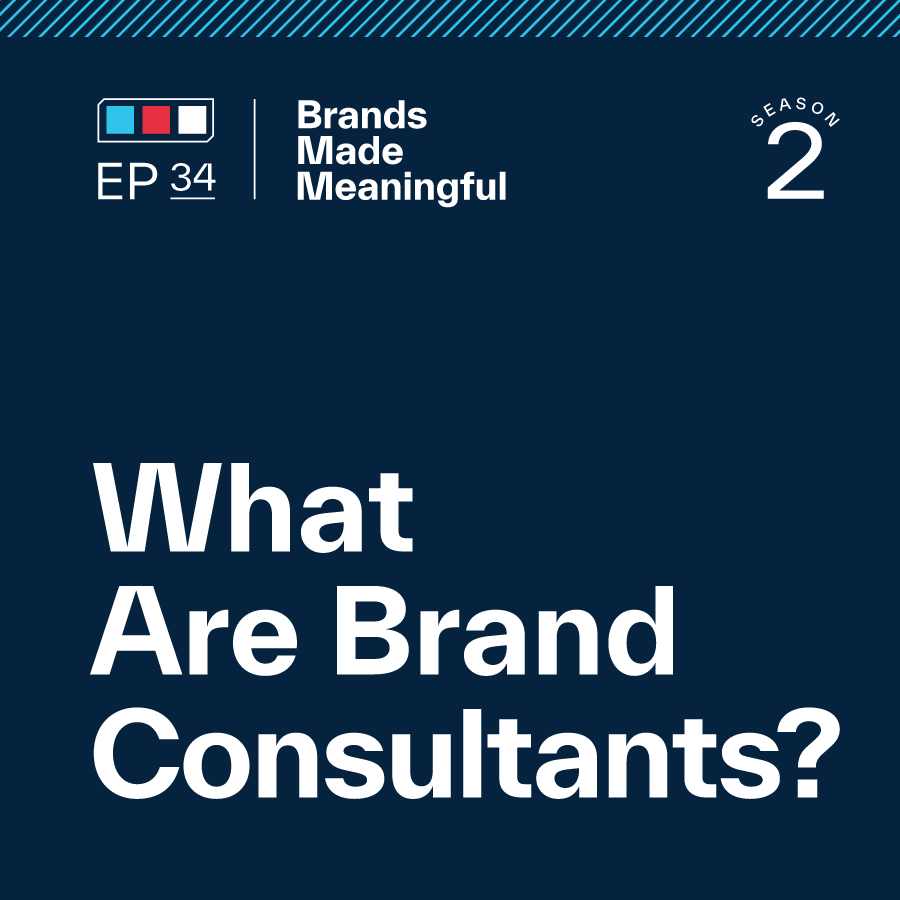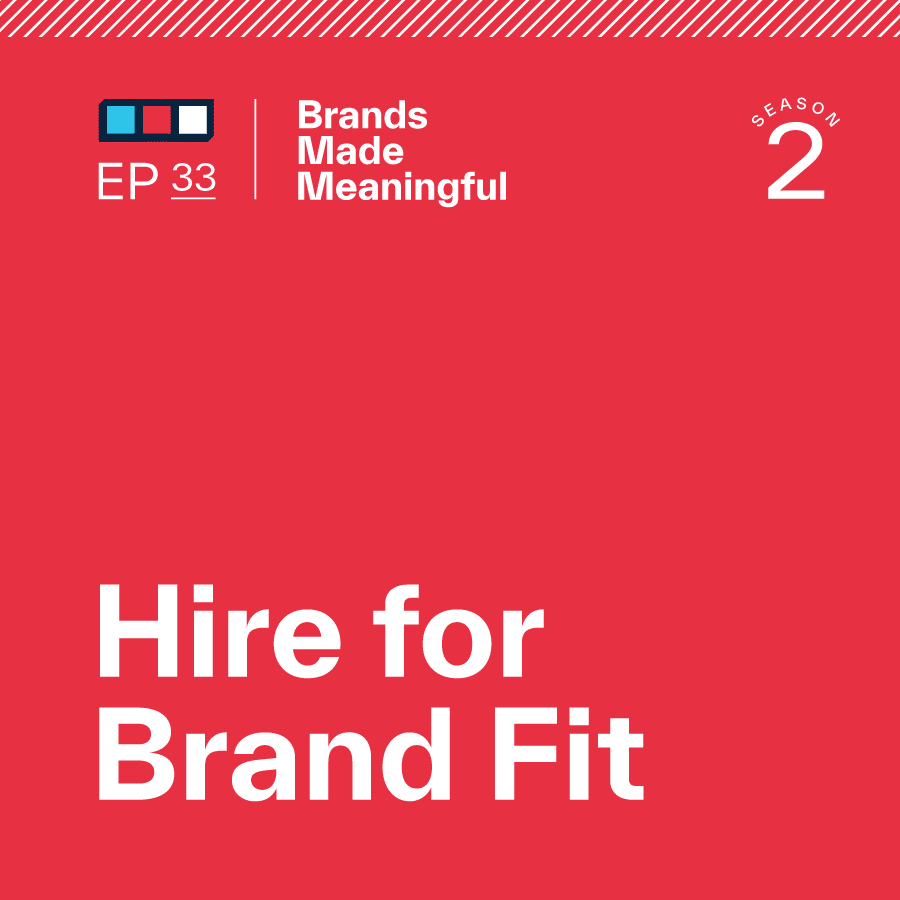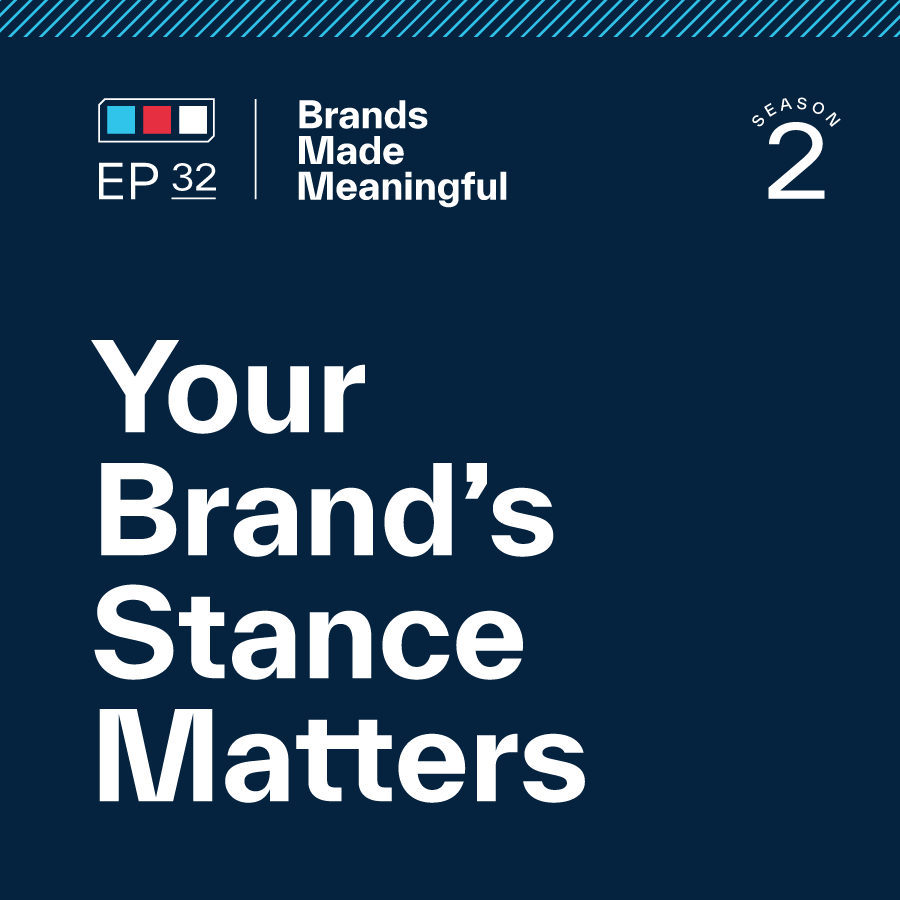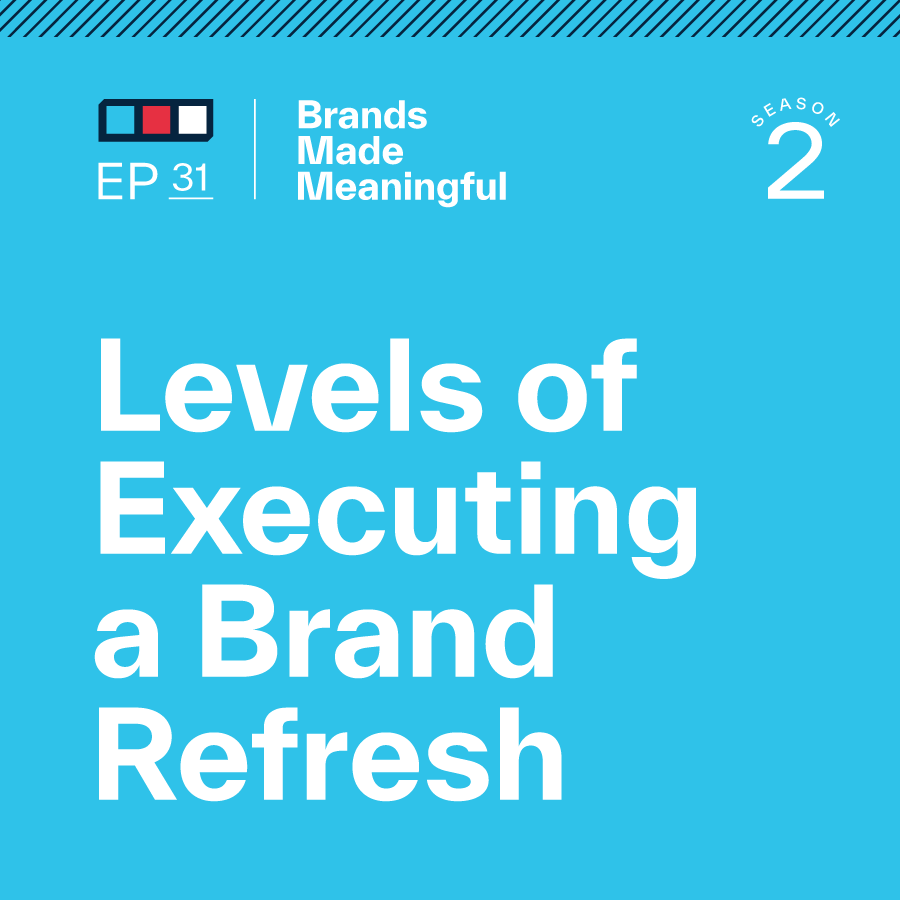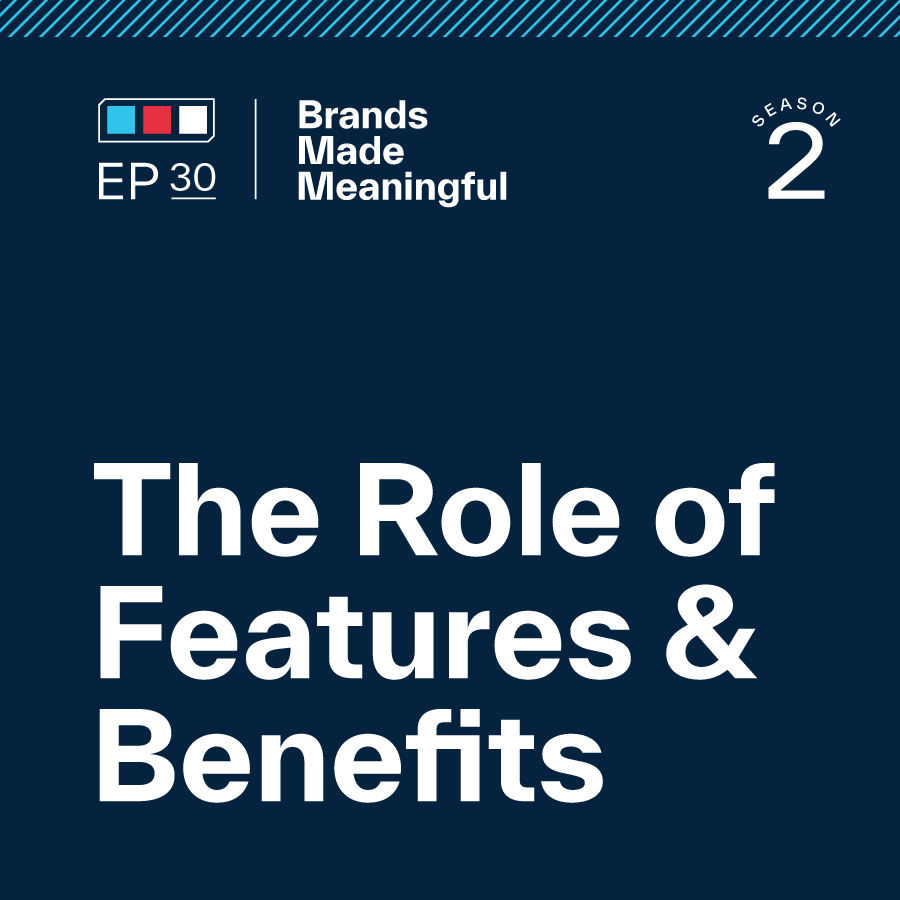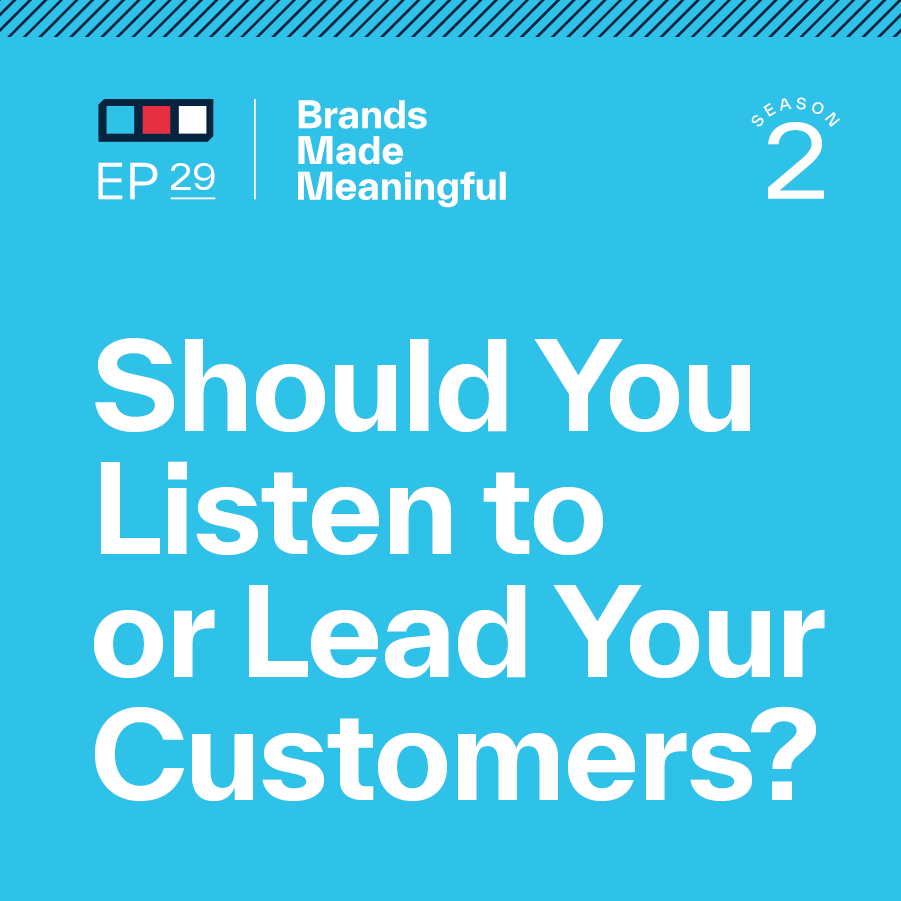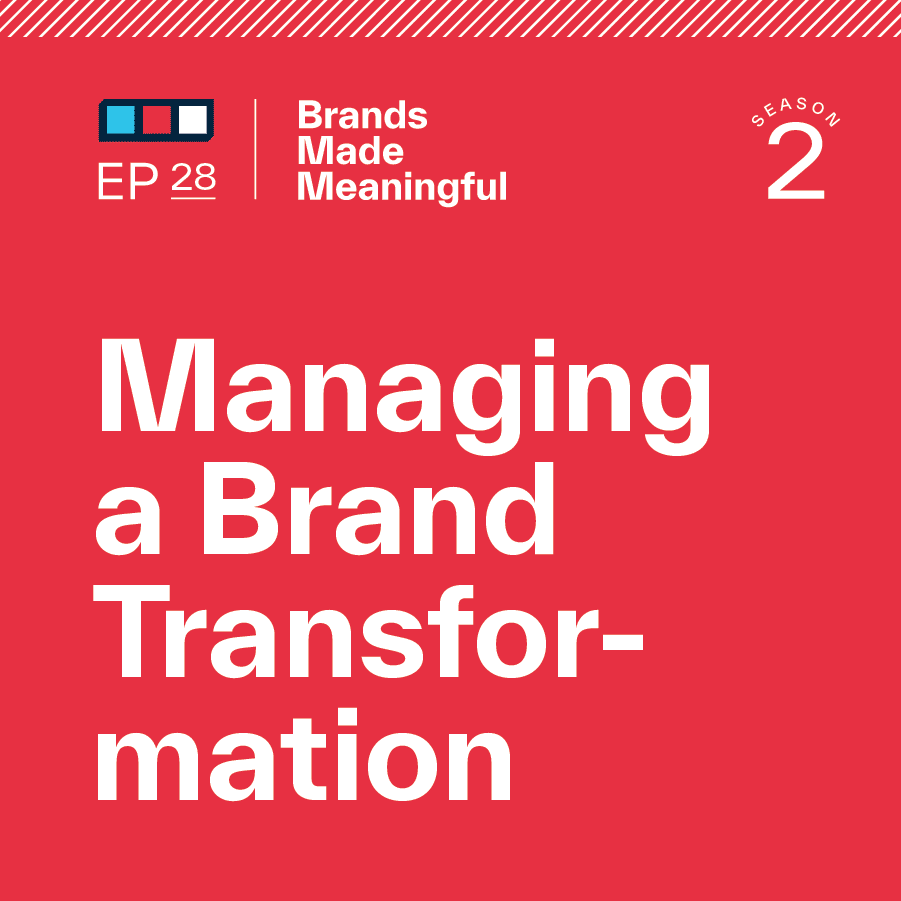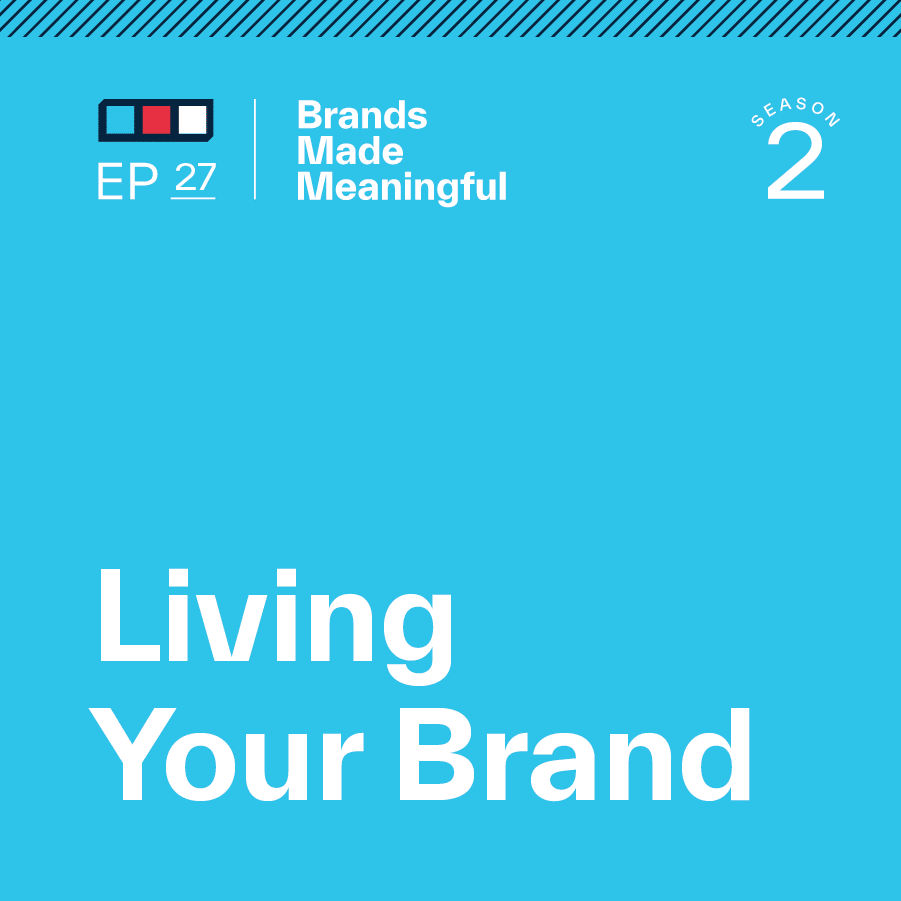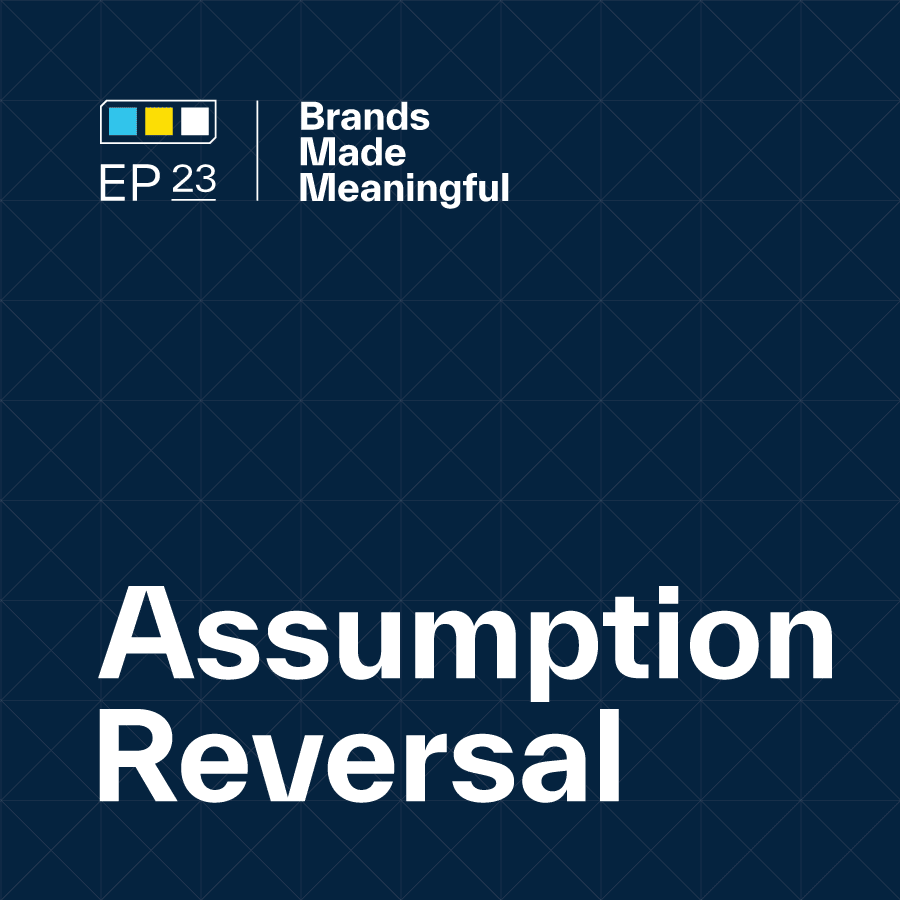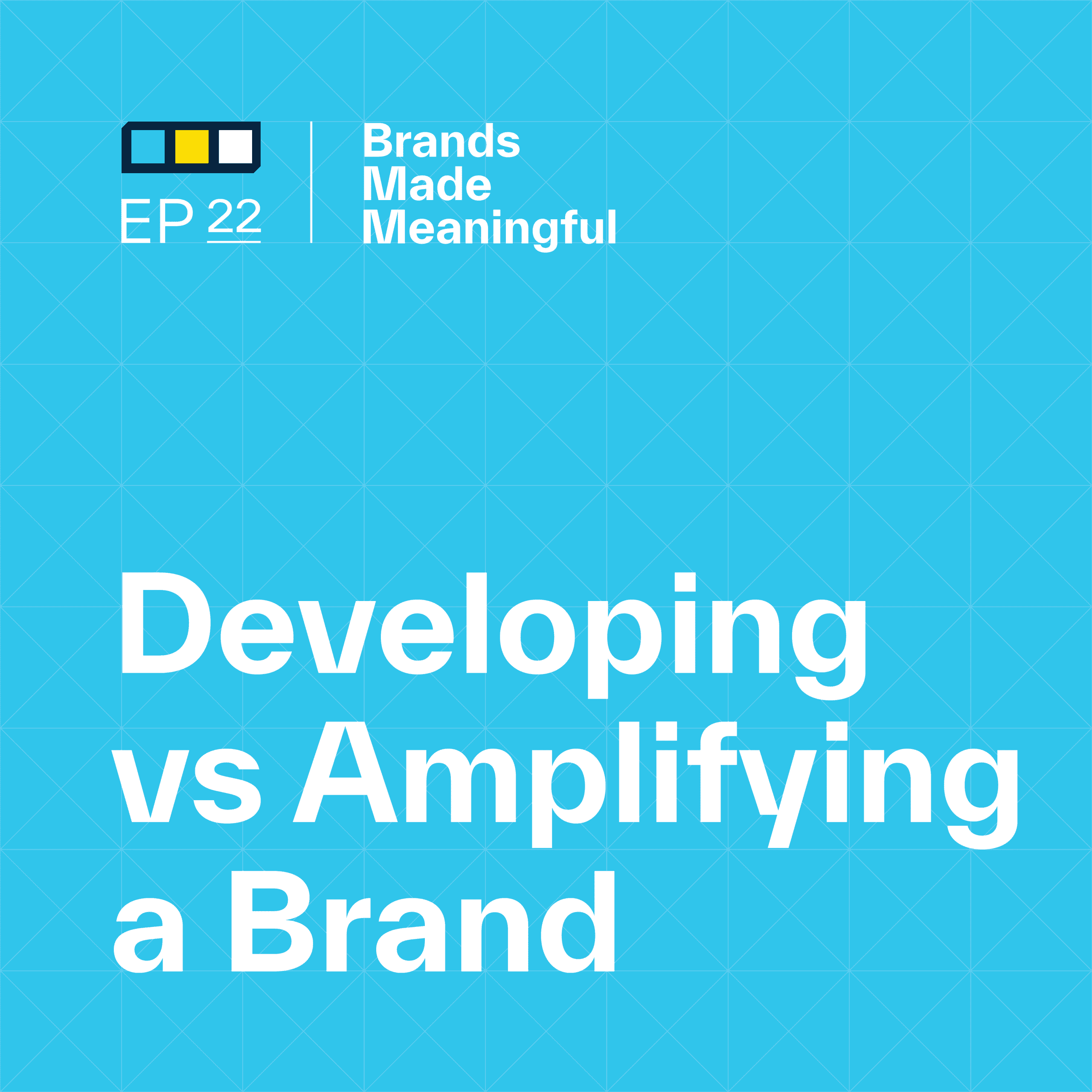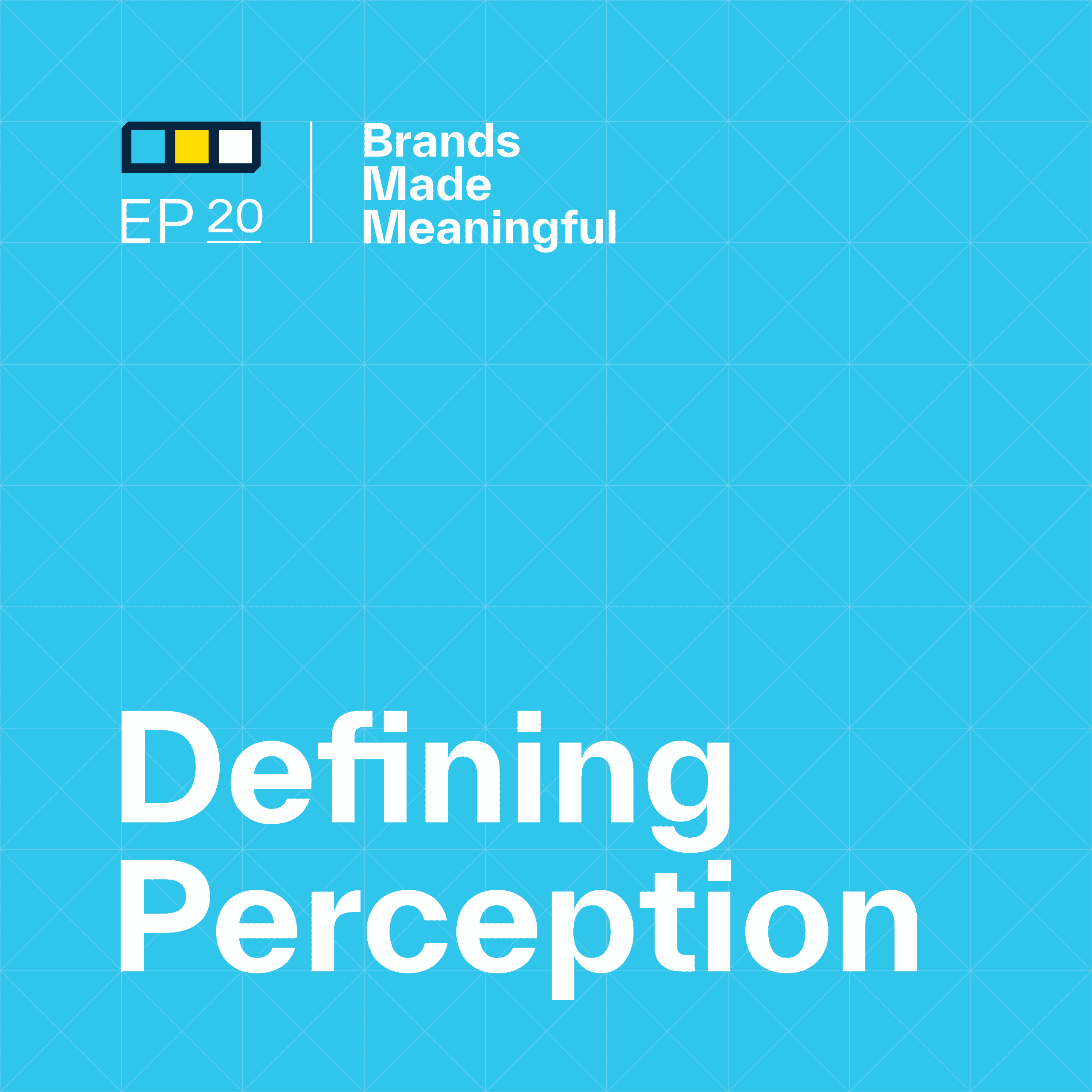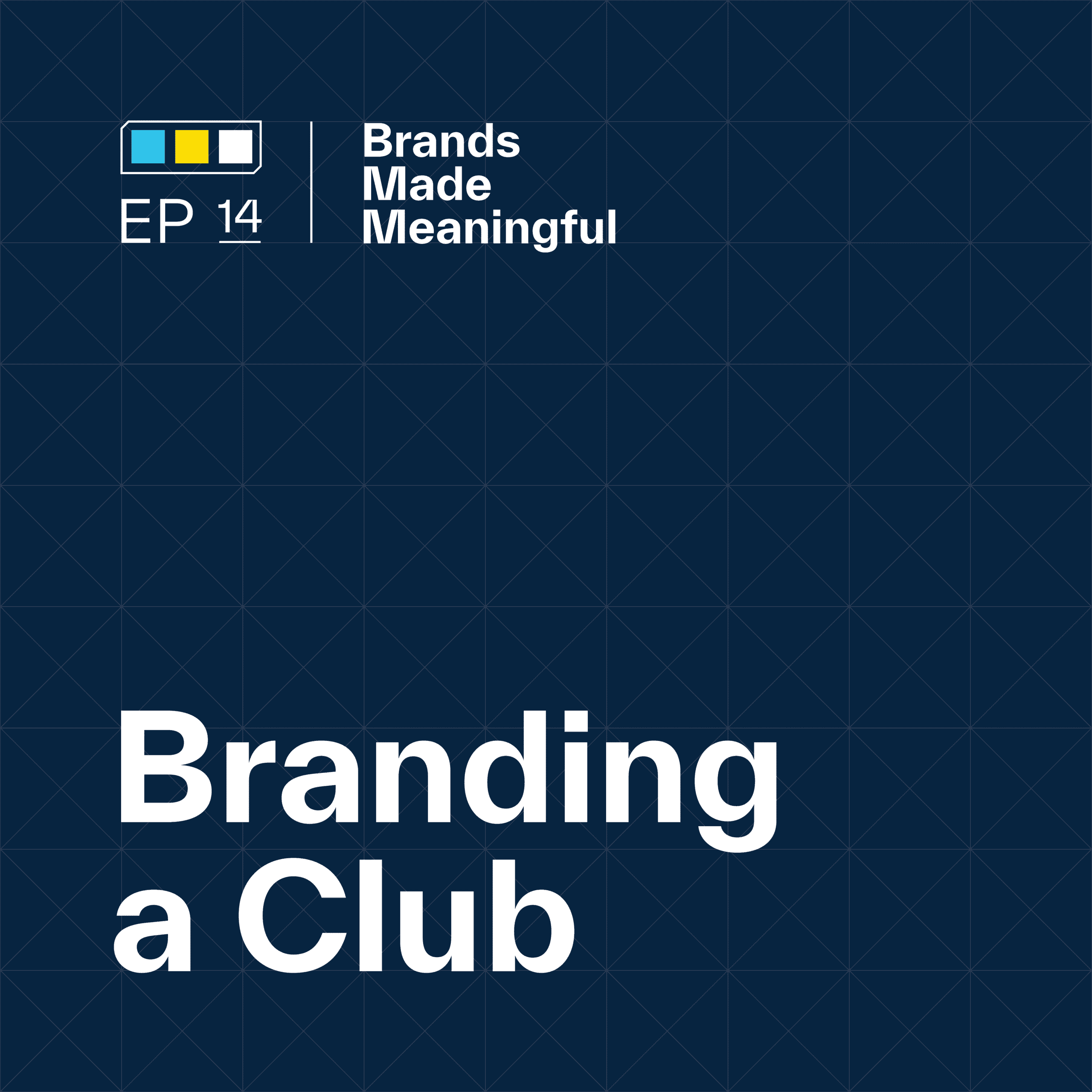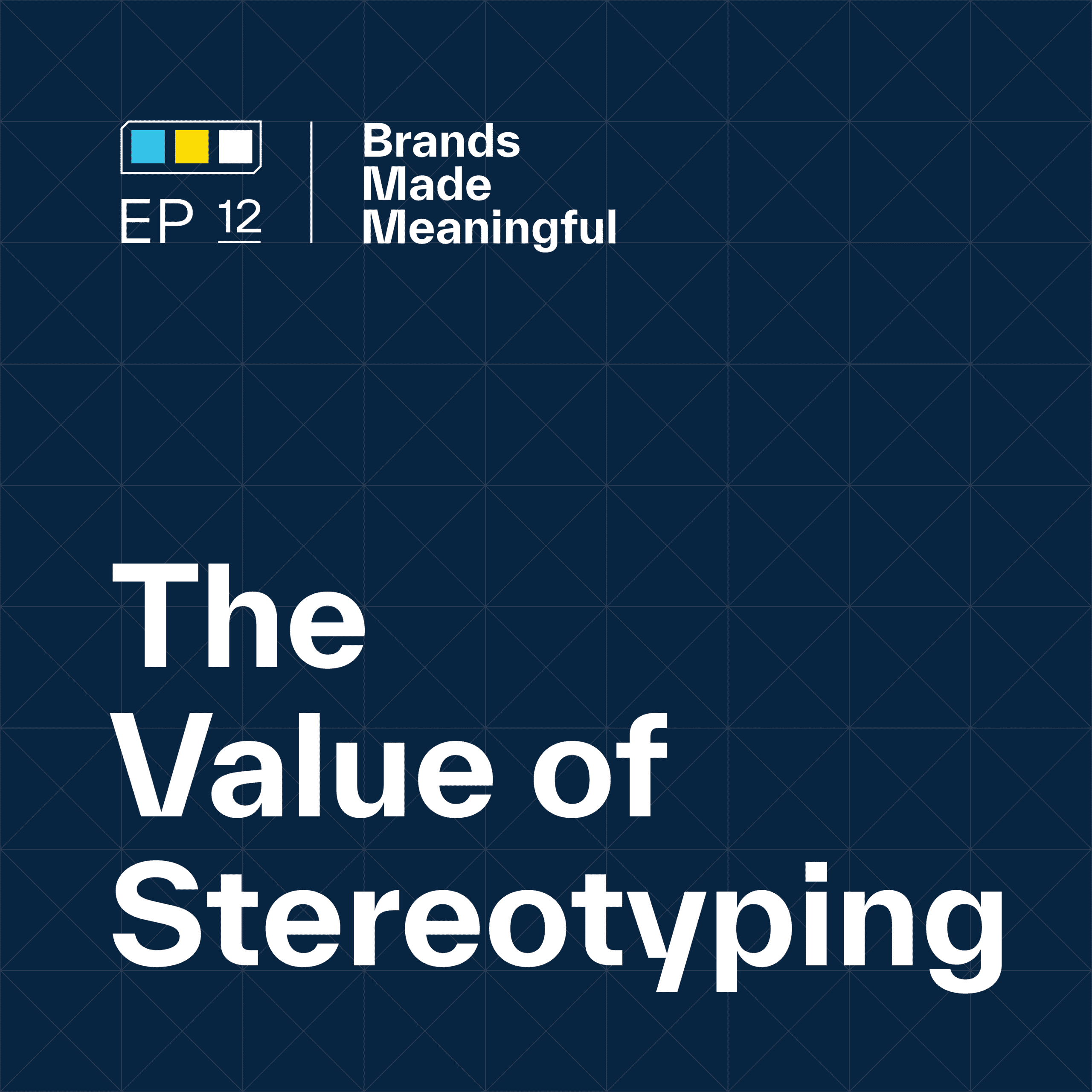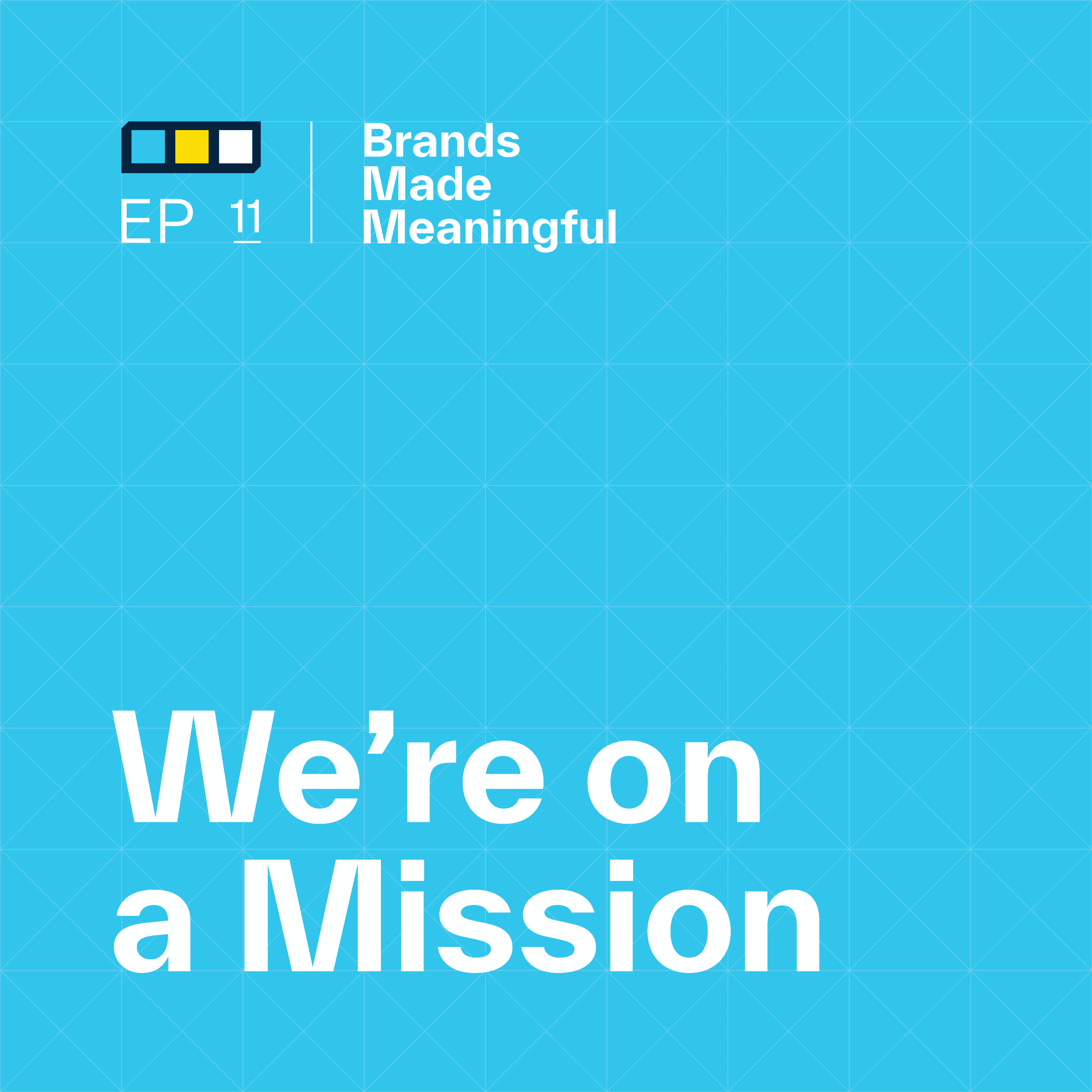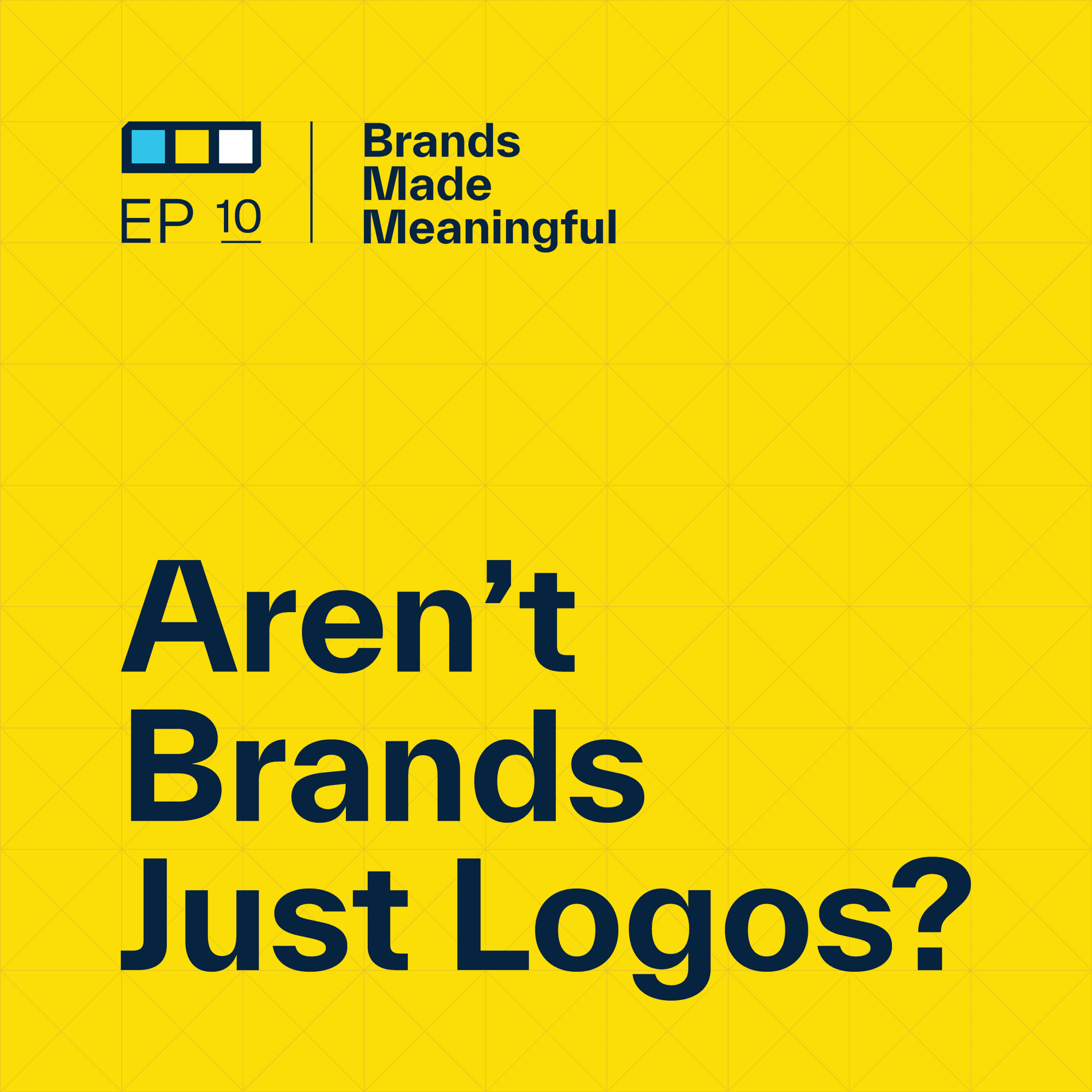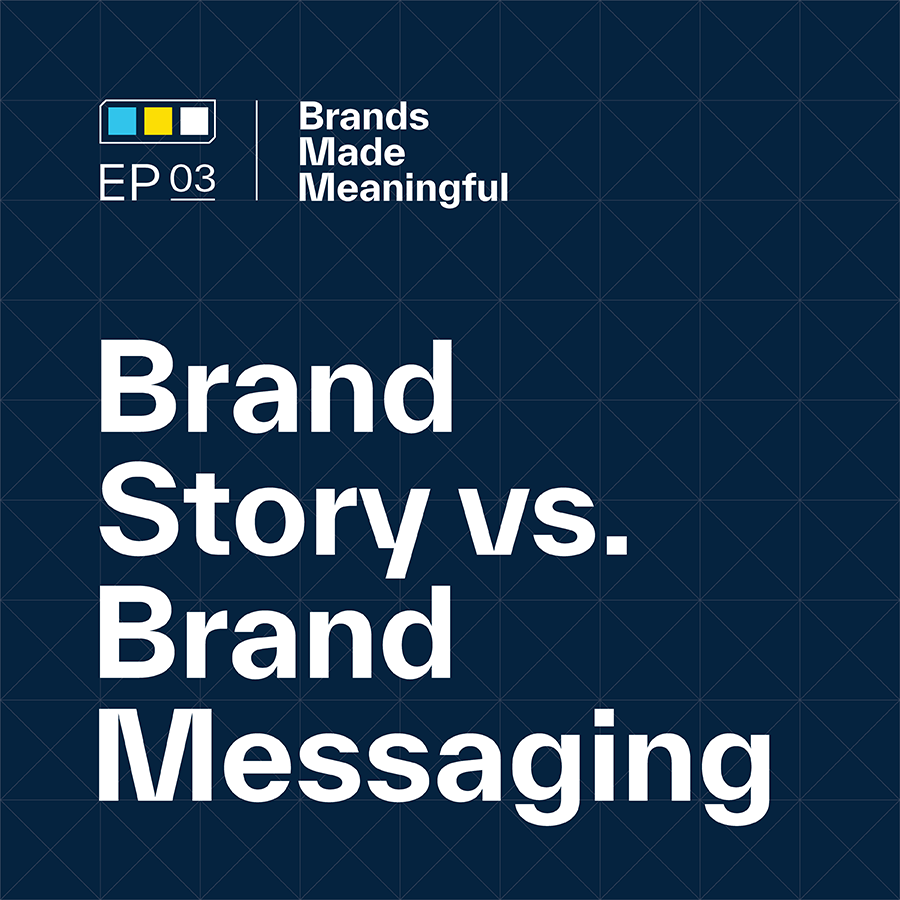EPISODE 42
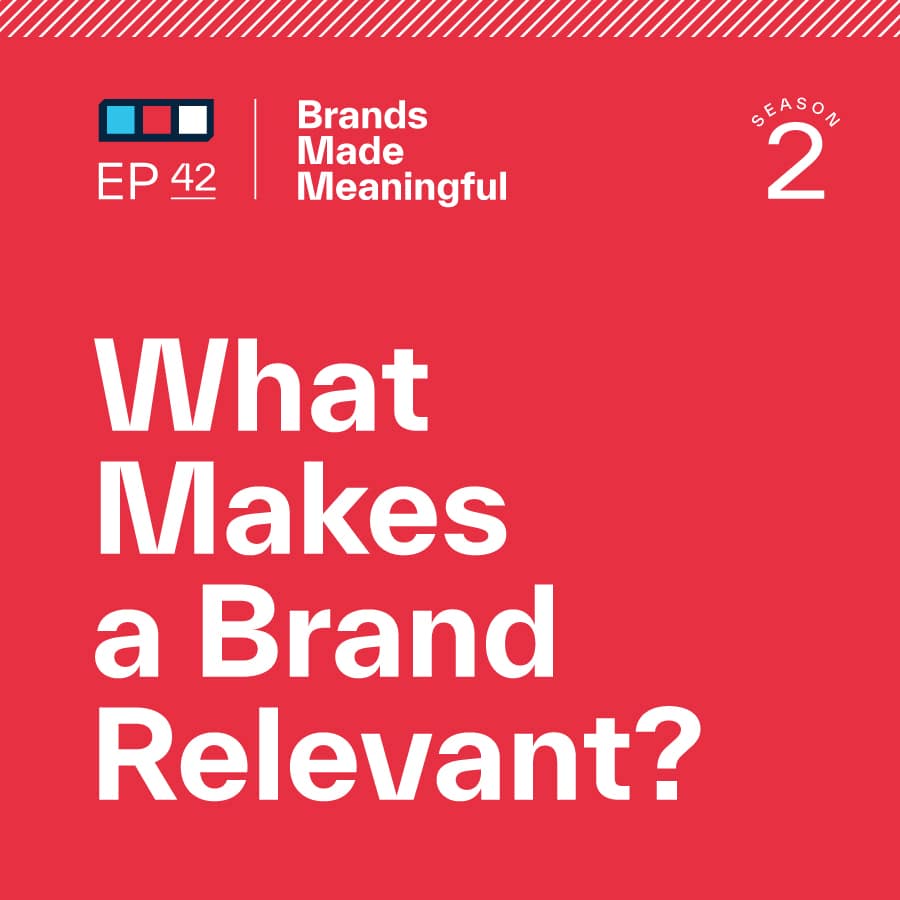
What Makes a Brand Relevant?
Episode 42
Relevance is a key piece of a brand’s identity for creating clarity and connection.
EPISODE TRANSCRIPTION
For most marketing leaders, relevance is the number one thing that they think of.
Tucker But that’s not always a successful adventure for them, as we’ve found out through our years of doing this.
Expand Full Transcript
Derek I think it’s really typical. It’s very normal for businesses who have a product, have a service, great product, something that they do really well, especially if it’s a person who did that specialization and they’re for somebody else and then went started their own business because that’s what they were good in. It’s easy to become so focused on what it is that you do that you can overlook the reasons why your audience should care at all about what you do.
Tucker Relevance is a key piece of a brand’s identity. It’s important because it creates clarity and it also creates connection. When you’re focusing on who you serve and why they care about what you give to them, that can really create this resolution in their minds to say, Oh, then I should go with them. It’s that clear choice of how they pick and how they go for it. At its core, and I’ve said this a bunch on this podcast, we believe that a brand lives in two places – internally and externally. The internal part is all about authenticity. We’ve already talked about that. That has much more to do with who you are and why you come to work every day. And there’s a lot of things that go in there. That’s episode 26. We went into it. I don’t want to get into it right now, so go check that out if you’re interested. But today we’re looking at the external facing parts.
Derek Outside our walls.
Tucker Outside of our walls – people who see us, not necessarily for who we are, but what we do for them. We look at this externally facing piece as relevance and surprise. Today we’re talking about relevance. I think down the line we’ll have a conversation about what surprise means when it comes to branding. But when we talk about relevance, this is all about creating clarity. It’s all about understanding your role for your audience.
Derek Let’s describe for our viewers, if we had a graphic, we could throw a graphic up there right now. But there’s a formula. There’s a formula that we’ve put together that we believe, when it all comes together, creates what we would describe as a meaningful brand. And so that’s authenticity on one side times relevance plus surprise. So we’ve already covered the authenticity side of the equation today, which is the internal, inside-the-walls conversation. Today we’re looking at half of the external, outside-of our-walls conversation. So to do my best to describe that formula, it’s that this is one of three really critical components when it comes to anything and everything around your branding initiatives.
Tucker So when we do any kind of brand strategy or brand initiative, authenticity, relevance, and surprise are one-third of that.
Derek But you have to have all three. For your brand to work, for your marketing to work, for your messaging to be engaging, and for sales to be active and successful, you have to have all three. But we’re going to hone in on one today.
Tucker So for relevance, it kind of circles around these questions. There are a lot of questions. We’ll get into all the different questions we asked during our process of narrowing down what is relevant to your brand. But the three high-level questions we ask are – Who do you serve? What do they need and want from you? And then why should they care about your offering? If we can answer those three, we think that’s just the tip of the iceberg, but it can really start getting you in a good direction to understand why you are relevant to the audience that you’re trying to attract.
Derek When you know those answers, and there are things that marketers might use to describe, Oh, you’re talking about audience profiling or your value proposition or even to a certain extent, you’re right to win, those are all pieces and parts of this that make this up. But what we’re trying to look at today is the umbrella around what relevance means, why it matters, and why you need to make sure you’re thinking about it.
Tucker I want to try as best we can to stay out of that realm, out of the jargon, what models we use for this, and what profile. If I get into that, just like reach across the table and slap me on the hand or something. But before we dig into why this matters, I would love to put the caveat out there. When you’re looking at your brand and you’re thinking about whether it is relevant or not, we always remind our clients that not making a change, not doing anything, is a decision. So when you come back to if you are relevant or not, if you’re saying, Yeah, it’s fine right now, I’m just going to keep moving forward, that is a strategic decision by you to say, That is done. So we own those decisions by saying we did nothing and there is a reason for that.
Derek Shout out to one of my favorite bands, Rush. There’s a quote in one of their songs that says, Choosing not to decide is still making a choice. And typically when somebody comes to us, they’re looking for a change. Something isn’t right with the status quo. So when we go through the process and through the strategy and we start looking at relevance, in some cases their brand is already perfectly relevant to their audience. But that needs to be a strategic review to come to that decision.
Tucker Okay, relevance. How do we know if it’s relevant or not? We’ll get into that. But why does relevance matter? Why do we do it? Why do we care so much about relevance?
Derek I think, first and foremost, it creates a stronger connection with your audience, with your customers, with the people that you’re trying to talk to. Literally, we’re making our brands and our products relevant to them.
Tucker It makes it easier for them to align with the needs. It makes it easier for you to understand the value that someone puts into it and also the goals and aspirations of your customers, clients, and audiences. That can help you connect in a better way. If you talk about why it is important to be relevant, it’s like, why do you pay attention to anything? If you want to listen to the news, if the news isn’t relevant to you, you probably turn it off. When it becomes relevant, you think that it’s speaking to you versus speaking just to anyone else.
Derek And that’s how you get to trust. When you can create that level of engagement where your customers truly believe that you are for them and you’re speaking to them and your brand is for them, that’s when we can now start to create customer loyalty and customer trust and people become fans of your brand.
Tucker A couple of big things stand out when we talk to clients about why being relevant matters. One is you have to increase your marketing effectiveness. We see this a lot. But if you’ve ever gone to someone’s website and you’ve scrolled through it and then you sit and think to yourself, or you say someone next to you, I have no idea what these people do.
Derek I think this is every website. Or most.
Tucker That makes it not relevant to you. If it doesn’t speak to you, if it doesn’t do these things, it has no effectiveness. We can get as many people to a website as possible, but if your website doesn’t have a kind of relevance to it or if you’re brand messaging doesn’t work, then it’s not going to be effective. You’re kind of wasting your money there.
Derek We’re talking about not being effective with the people you are trying to talk to. If you have a hockey training company and a person who plays basketball lands on your hockey site and says, Well, I don’t know what these guys do. This isn’t for me. That’s okay. That’s not what we’re talking about. We’re talking about not giving clarity to the people who have come to your site who you were actually trying to get there.
Tucker Think about primary, secondary, and tertiary audiences. So we’ll get into audiences in a little bit here. But when you think about who you serve, you shouldn’t care about everybody that comes to a website. You shouldn’t care about everybody in the world. Your organization, your product, your brand, your service isn’t really for everyone. That’s not how it works. So we need to think about who it is for and then if it’s relevant to them. Do they get it? If they get it, then don’t worry about it. That’s a good thing. And there’s also this part of effectiveness when you showcase your brand, your solution, to people, it feels like you’re solving a specific problem. And that’s a good thing to say, Oh, wow, that seems really specific. That’s not necessarily a bad thing because if you have the correct audience in mind and if they feel like you’re solving their specific problem, a problem that no one else on the market solves, then you are in that right-to-win zone. And we talked about that a lot in our last episode, The Right to Win. Getting into that zone is critical for winning business.
Derek This is where you can cross over from providing an external solution to somebody’s problems to actually potentially connecting with them on an emotional level. When you think, I have this problem. I don’t know how I’m going to solve it. This is driving me crazy. And when you finally come across somebody that says, Oh, yeah, that’s what we do, and we do that for you and we do it all the time. And, yeah, it’s complicated, but we can help. We’re the people to help you. That can create an incredible connection with that audience.
Tucker Going on to the next point, it derives satisfaction to say we have clear expectations for what we’re getting into as your customer or as your client and say, Hey, Derek, thanks for offering me this thing. After we agreed to it and moved forward, I got out of it exactly what I thought I would because I knew what I was getting into. So that level of clarity before the sale can really drive customer satisfaction post-sale because there’s no bait and switch with them.
Derek The unknown is incredibly frustrating. It causes anxiety. Ambiguity is one of the worst or biggest challenges that any business needs to overcome. Short of you selling a hard product widget where you can literally just hand it to somebody as a transaction, maybe it’s not so tough. But when you’re in professional services or when what you sell, like branding, for example, it gets a little gray and it is harder to define. Removing as much ambiguity as possible will help a ton.
Tucker The last reason why we do this, why we care about relevance a lot, is it increases the natural brand awareness that you can have. And that’s super powerful for small businesses, for large ones, it’s powerful for everybody. How do we turn your customers, your clients, and other audiences into your salespeople? How do we make it easy for them to tell other people about you? You can only do that when it’s relevant. We work with product companies all the time. In working with the sporting goods product company, we had to have this conversation of if we’re relevant to them, they’ll want to tell their friends about it. And their friends are in that audience too. So when we keep moving forward, we can have as many salespeople in the world and that’s great. And we can keep, as you would say, pounding the pavement to get as many sales as possible. But how do we scale those sales? If we make our customers sell our brand for us because they’re so proud of it, then we’ll have that scalability. That’s crazy to be able to access conversations that we can’t access because they trust us.
Derek It’s a way to grow exponentially with the people that you’re trying to talk to when the right people are spreading your word for you. This all assumes that you followed through, your products were great, and your services were great. We’re just going to assume that you’re crushing it. But now when you have that customer selling for you, the growth is real.
Tucker There are so many businesses out there, and I would go out on not quite a limb, to say a lot of the people listening to this, a lot of people who are struggling with their brand, are not the only offering in their market that does that same thing. So if you cannot differentiate, if you cannot do those things, being relevant to someone is supercritical. Because then to say we are for this specific person and they believe that we can solve their problem, that’s where you make a name for yourself in an industry because you do something for someone specific and you solve it really well. What are the red flags? We look at all these different problems. We say, here are some warning signs, some red flags.
Derek If you’re not doing a good enough job on that website we referenced telling people what you do, who you’re for. There are a handful of things that we’ve identified as pretty tactical, hopefully obvious, symptoms or problems that you might be running into.
Tucker We look at solving the problems, but in order to know what the problem is, we have to look at the symptoms. Sales is a symptom saying, What does that mean based on how we look up the love ladder, the chain reaction that it creates? So here are just a couple that we’ve listed out based on conversation.
Derek We’ll start with that one.
Tucker Okay, one would be stagnant or declining sales. That could be a red flag that you are not relevant in your market. Maybe you are selling something people just don’t want or maybe you’re selling something that was relevant and is not relevant anymore. That can be a common thing and that doesn’t necessarily mean that you just need to sell more. It might mean the way that you’re selling or what you’re selling needs to modify.
Derek Another one is when the messaging that you use in your marketing materials doesn’t align with who you are. Companies start talking to their customers and telling them what they think they want to hear without making sure, back to our authenticity conversation, that what they’re saying is actually true to themselves in addition to being relevant to their audience.
Tucker It can get hard to write good messaging that lasts a really long time. I hesitate to go back, but it has to be relevant. It also has to be authentic. So if you don’t have the answer to the authenticity portion, that goes back to episode 26, those things go hand in hand. If it’s authentic and relevant, it lasts a really long time.
Derek And when it’s surprising, it stands out and gets noticed. But that messaging can be totally relevant to your audience. It could be a hockey message to that hockey player. That might be exactly what they want to hear. But if you can’t back that up, if you’re blowing smoke, so to speak, it might work for a minute. It might work in the short term, but long term it’s going to ring hollow. And when that customer finds out that what you say isn’t true to you, now you’ve lost not only them but that whole network and that telling of everybody about you. That can happen in the negative also.
Tucker Another red flag is negative feedback. So you might have done the sale. You’ve completed the sale. You got them there. They felt like it was relevant. And then when they actually get the product or they get the service that you’ve sold them, it’s not as you promised. It’s relevant to them but the offering isn’t relevant to them. So your brand is more than just what you say. That’s more than just your marketing message. It’s absolutely the experience that you create, whether it’s with that product or with that service. And if you’re not creating that experience that backs up your messaging upfront, then you create a negative loop and people go, Well, maybe you get negative reviews online, or maybe you get feedback from clients or customers that just say that wasn’t what I wanted from. Or maybe they just drop off in general and you go back to them and say, Hey, what happened? And they say, Well, that just wasn’t what you had sold. I did not get what I bought. And that’s where you can create these negative feedback scenarios. You should listen to those. You should absolutely be aware of those, but be aware that you can change that experience. They might not match the way that you’re trying to sell it.
Derek Especially if that is a right fit customer from your perspective and not somebody who says, Well, our brand’s not for them. That’s why this was negative for them because this was never a right fit. But when it is a right fit, that feedback is incredibly helpful. It takes a bit to swallow your pride sometimes and read it and sift through it. But it’s great.
Tucker Another one is declining engagement. I think of engagement on the content side. It can be on a lot of things, but content’s probably the easiest for people to understand. When we say that people lack content engagement or have a lack of content focus, this is when we get into a conversation saying, Well, the content you’re creating isn’t relevant to the people that you’re talking to. So maybe you sell a product and maybe that goes to hockey players like you’re talking about. But maybe something really cool happens in the basketball space and you’re like, I wish our company could post on that. And then you just do it anyway. And that might not be relevant to the people that you’re trying to talk to and that becomes distracting from here’s what we do, here’s what we offer, and this is what we’re all about versus here’s what we do, this is what we offer, and sometimes we’re about this. Sometimes we just can’t be about that other thing. This happens a lot when you get founders and CEOs who are really open to other opportunities. They like opportunities. They get distracted by the shiny object and they start talking about that and wanting to go sell those things when that’s not relevant to your audience.
Derek We work with a lot of companies, a lot of brands that have earned themselves or have come into the discipline of posting on their social channels consistently, which is great. So you get a huge thumbs up and a gold star for that. But a lot of them are just throwing anything and everything out there to see what sticks and what becomes engaging. And when we have the relevance conversation with them and say, keep posting often, keep the cadence up, keep the rhythm up, but let’s run what you’re putting out there through this relevance filter, it’s kind of a relief. It’s like, that’s why we should be posting that and not that. And that’s why that post was engaging and that’s why that content is resonating.
Tucker It’s the reason why this podcast started in the first place. We were talking to our clients who said, What would be helpful is if you answered some of these questions that I had a long time ago but I didn’t have the ability to go, Hey, guys, I have this problem. They didn’t know they had the problem. And so this podcast started with an ability for us to go, What do our audiences want from us? They want more authentic content about the problems that we see in the real world and how we solve them and how we move forward. And so that’s what this was. And from everything that we’ve gathered from the people that we want to sell to or talk to or work with, that has worked. This is how we do it. We don’t sit on this podcast and talk about the 43 trends of 2023 design. That is not relevant to the people that we’re trying to sell to. They’re trying to solve business problems. They’re not trying to solve graphic design – the unique look problems. And so when we get into it, those things can get distracting. And that’s why we don’t do that kind of content.
Derek Exactly.
Tucker The last thing that we would be aware of, or a red flag that you could see every single day, is that you lack differentiation. Basically, it means you’re not unique. You might offer something that someone else in your industry or your market offers exactly the same. You might be relevant like you might be solving problems, but you’re not solving problems for a specific audience because you’re not specific enough.
Derek We dug into this completely in the podcast that preceded this, which is all about that right to win with that audience, not only to create a relationship that’s authentic but also to help you create a value proposition, an offering in a way that separates you from somebody else who might be similar to you in your space but your audiences aren’t understanding the uniqueness and why you might be right for them rather than somebody else.
Tucker Two things that I want to say for watching out like, Hey, watch out. This might not be something that you see right now. It’s not a red flag. But it’s something where I would say, Head on a swivel. This can happen quickly and it will change everything for you. And one of them is audience psychographic shifts. You might be serving an audience today that a year from now, their psychographics might completely shift. The reason why they like things might completely shift. If you are not paying attention to your audience, then you can keep pushing your brand the way it is today and it can become irrelevant. It can become stagnant and stale because you’re not changing based on the way that your audience needs you to change.
Derek Every brand had to think about this during COVID. Some businesses benefited from it. Some of them struggled mightily because of it, because of that cause, and you couldn’t see that one coming. But another one is to catch on a trend or the popularity of like the World Cup. And women’s soccer is more popular now than it’s ever been. If I were serving that audience, I would be really aware of the shift in popularity and the trend towards women’s soccer and what they need, and why that is resonating so hard with everybody.
Tucker It’s easy. It’s easy, especially in the sports realm, to think everything is how it’s always been. We have clients even today that we have to have conversations about, I know what you’re talking about, but it’s changed in the last 20 years. You used to be a salesperson in this space. Now you are the CEO. That has changed since you’ve been here because people care about different things. And that’s the way we are as humans. We change as the environment around us changes.
Derek So back to one of our intro comments about choosing not to change is a choice, shout out to my friend Tim Kirin, who says the seven words of a dying business are because that’s the way we’ve always done it.
Tucker It’s super true. And the most successful brands we’ve ever worked with have never had that mindset. Their mindset is their job is to be relevant. Their job is to evolve and to transform themselves to be able to fit the needs, the desires, and the culture around them. And that’s where you find great brands thriving in their marketplace. It’s a great thing to look out for. So audience psychographic shift is a big change. And then lack of innovation is kind of on that same line. What you’re saying is our product has always been this. That’s how it will always be. Here at Sussner, if our product is what it always has been, then we would only be doing annual reports and that’s it. But showing how much we’ve changed is a good case study to say we cannot keep doing things the way we’ve always done it. Because that’s not what the market needs because we’ve adapted to that. That’s so true for some of our clients to just say they need to change their products, they need to change their services, they need to change their offerings based on what the market needs them to be and what their audience needs them to be. Because your audience isn’t going to need the same thing today as it will ten years from now. It probably will need to shift. Whether it’s a lot or a little is dependent on other things. But keep aware that if you haven’t changed in ten, 15, 20 years, you’re probably not as relevant as you could be to that same audience.
Derek I think the most successful brands in any industry that you or I or our listeners can think of have been really successful because they’re proactive in thinking about and in planning for and in anticipating what those changing things might be versus the ones that wait and just react and run and try as hard as hell to keep up. Which can work for a while but after a while, you’re going to run out of gas.
Tucker I think that the most beneficial thing a leadership team can do, especially from a brand side, is to be forward-thinking, to not even think about today necessarily, but think about three, five years from now and say, What will we need this to be? That’s the same reason why when we go into all of our brand development process, we always go into it with the mindset that you might not need this complex of a brand today. We’ll build the simple version with the complex version in mind because you’re going to need that in five years. And I don’t want you to come back with a whole new problem because we weren’t thinking ahead.
Derek One of my favorite scenarios that happens all the time when you and I are in an early business conversation is when the client puts their logo on the table. In their mind, what they’re trying to decide is if this branding initiative means that they need a new visual or not. And oftentimes they’ll say, Well, what do you think of our logo? And your answer is always, I don’t know. I don’t know who it’s for yet.
Tucker In a new business conversation, if we start with your logo, I can’t tell you if it’s good or bad because I don’t know, one, if it’s currently working, I need to do some testing. And, two, I don’t know what your future strategy is to make that work. You’re getting into tactics. So for us, tactics can sometimes kill strategy because it is just burying the reason why we’re doing it and what we’re trying to accomplish amongst the mountain of to-do’s that everyone has to accomplish.
Derek Let’s shift to how this problem can be solved because I’m looking at our shared notes. And these are all strategic ways. None of these are tactical. This is literally climbing up to the top of the tree and looking out at the forest and saying, What do we need to be doing to be relevant on a very high level before we get all the way down to the bottom and start throwing darts at tactics or messaging or marketing efforts?
Tucker I’m sure at some point someone’s going to want me to step out of this podcast so I don’t keep talking about the super high-level stuff.
Derek There are other podcasts where we will drill into tactics, colors, and content.
Tucker So, yes, we’re going to get into the strategic part of this where we are going to understand how we can strategically get into that relevance zone. Our process starts with collecting and understanding the current audience the way it sits today. We did a couple of episodes a long time ago about research, doing research, and executing research. That’s more of a tactical conversation. Listen to those. Those are great to then say, I want to do interviews. How do I do interviews? I want to do surveys. How do I do surveys? That was all back then. But now we’re going to talk about when we go off for that research, what are we trying to answer? What are we wanting out of all of this? And then how do we move forward from a super high level? But we break it into three camps. One is we focus on our offering. Is it where it needs to be today? What do we offer in the simplest terms? What makes our product different than anybody else’s on the market? And what reasons would anyone choose us over someone else? That can help us start narrowing in on our brand offering to be more unique, being more relevant to someone. These kind of all play together. You can’t just kind of knock them off one at a time. You have to go back and forth and back and forth and you’ll see why. The second one is roles. Who are our customers? Who are our consumers? And then do we have any gatekeepers in this situation? So the difference between customers and consumers is customers are the people who buy your products, and consumers are the people who use your products. They may be one and the same. That’s absolutely something that happens all the time. And then we ask about gatekeepers to say, Is there anyone that is our barrier to entry with that customer or consumer because that person needs to be a part of this? I almost hate the name gatekeeper because it seems as if you are there unnecessarily.
Derek The center of influence is another way to describe it.
Tucker That might be a nicer way to say it. Those people, those centers of influence, those gatekeepers, they’re going to be the ones that need to champion your brand. And they’re critical. They are absolutely critical. If you can build trust with them, those are the people who can help build trust, whether it’s internally in an organization or whether it is a salesperson who needs to sell for you. Most people dismiss them like, I just need to get around them. I think that you could build them up to champion your brand and create what we would call an army of awareness to say If I can build that army, then I have people out there in organizations, on the inside of those walls, fighting for me versus me having to get around them and then fight for me by myself. So those people are really important. The customers want to please the consumers. So if those people are one and the same, then they just want to please themselves. But if they’re not one and the same, you can go down this really great rabbit hole of figuring out why they want to please those consumers and what they really want out of that. Whether that’s a parent buying a sporting goods product for their child who’s an athlete, what do they want their athlete to do with that? What do they want out of all those things? It’s much more emotional than you would think it is. Or maybe they are a CEO who’s buying it for their employees and what do they want their employees to do with that and what are they going to do with the feedback? So how does that work? And then with the consumers, they need to see your brand as the solution. But surprisingly enough, with your consumers, that’s where the product experience and the service experience all really matter. That isn’t the critical point for your marketing message. That’s for the gatekeepers and the customers. So figure out your roles. Figure out who you are speaking to. Figure out the whole lay of the land. Who are the gatekeepers? Who are the customers? Who are the consumers? What would they want from us? What does each one of them want from each other and be a part of that ecosystem? Don’t disrupt that ecosystem.
Derek What you just said – What do they want? That is the third question. If the first one is, What do we offer? And the second one is, Who are our customers, consumers, and gatekeepers? Then the third question is, What do our customers, consumers, and gatekeepers care about?
Tucker What they care about is a great thing to think about it. What are their goals? Not only goals with what your product is but how can you help them reach their personal goals outside of just your product or service? And then what are their preferences when they go shopping for things? If your product is found in a Target or a Wal-Mart, what do they prefer? What kind of other brands do they buy? How you understand their kind of worldview and move that forward in some way where you feel like you’re a part of that worldview is a great, great obstacle for you guys to figure out.
Derek And you start to think about our consumers versus our customers, and then you really start thinking about how you can talk to each one of them in a way that will resonate specifically with them. We have some people that we talk to get excited because the light goes off and they go, Yep, I can see this. This is exactly the clarity I need. Like a cloud just shifted. Other people start wringing their hands in anxiety and nervousness because they know that they either lack information in one of these areas or they haven’t yet solved one of these components effectively.
Tucker So think about the whole tangent I just went down with the roles and the motivations and how that all works. And now go back to your offering and say, think about all those customers. Now, does that change your answer for the reasons why people should choose us? Does that change your answers on why your product is different? Because if your product is different in a way that they see as valuable, not necessarily as you see it as valuable, then you are winning. It’s a really hard thing to take yourself out of that equation, to say, I’m a part of this brand, but the brand isn’t for me. We can sell branding to sports organizations all day, but I’m not a sports organization, so my brand should be a little bit for me because I’m an employee here. It should speak at some point to me. But our brand should really be for the marketing leaders and the strategic leaders at sports organizations across the country to understand how they can do that. That’s really, really hard. Think about detaching yourself from your product, especially if you are a one-man band or if you have a small team of people to say, You know what? Maybe our website shouldn’t be like this because I don’t necessarily love it when it’s changed, but it fits what we need to say to these other people.
Derek It’s coming to terms with and even embracing the fact that your brand and what you do with it and how you talk about it needs to be for someone. And the more specific you can be in defining that someone, the easier all of your other efforts are going to be.
Tucker And there is a level of fear and excitement and nervousness. If you’re not a little bit nervous, if you’re not a little bit like, Oh, my God, but we’re leaving this other thing to go in this one direction, you’re probably going down the right direction. Because most people are scared of narrowing. But that’s where you become the most relevant.
Derek And when you find that relevance, the peace of mind, the relief, the excitement, the confidence that you then have in all of the decisions that you’re currently making or need to make, now it’s so much easier to make those choices. We’ve talked about being authentic and being true to who you are as an organization. Now we’ve talked about how to be true to your customers and how we can be relevant to them. In an upcoming conversation, we’re going to capture surprise and how you can do all of that in a way that helps you really stand out.
Tucker I think that we should do something special for the surprise episode.
Derek Like, put it on camera?
Tucker Like a musical or something maybe.
Derek I’ll practice. I’ll see if I got some drumsticks in the closet someplace. It might not be relevant for anybody, then.
Tucker Probably not. A big takeaway for me on this episode, I know we’re wrapping up here, is that branding is about being for someone, not anyone. You need to build something that is specific. You need to build something that makes someone go, Oh, my God, that is for me because they built it for me. And that means you are relevant to them. So do that and you’ll be super successful. If you have questions, reach out. If you have suggestions, reach out. If you have complaints, talk to Derek about it and we’ll see you on the next episode. Thanks.
Derek Next time. Sussner is a branding firm specializing in helping companies make a meaningful mark, guiding marketing leaders working to make their brand communicate better, stand out, and engage audiences to grow their business. For more, visit Sussner.com.
More Episodes Like This
Taking Care of the People Who Take Care of PeopleEpisode 90
Derek and Tucker are joined by Craig Pratt, co-founder and board chair of the nonprofit organization Holes Fore Hope.
Reviving New Member InterestEpisode 89
Derek and Tucker explore options for generating interest among prospective members and inspiring them to join your club.
Brand Through the Eyes of a Club Manager & Consultant with Chris CoulterEpisode 88
Chris Coulter, Vice President of Club Consulting with the McMahon Group, joins Derek and Tucker to discuss the intersection of branding and consulting in private clubs.
Evolving Member ExpectationsEpisode 87
Derek and Tucker dive into the differences between generational club members, their wants and needs, and how to balance out expectations across the board.
Winning the Talent Game with Tom WallaceEpisode 86
Tom Wallace of Kopplin, Kuebler, & Wallace joins Derek and Tucker to discuss the importance of a club’s brand in hiring and retaining right-fit employees.
Reclaiming Reputation Through Brand RevitalizationEpisode 85
Derek and Tucker discuss the potential that a branding initiative can have to restore a club’s reputation.
Branding The Club with Don KovacovichEpisode 84
Don Kovacovich, GM of The Club at Golden Valley, joins Derek & Tucker to discuss the impact that rebranding has had on his club and the opportunity it presents for other clubs
Changing a Club’s Membership ModelEpisode 83
Derek and Tucker discuss key considerations and challenges when changing your club’s membership model.
Connecting a Club with its Story with Jackie CarpenterEpisode 82
Derek and Tucker are joined today by Jackie Carpenter, author of People First.
Branding a Club AnniversaryEpisode 81
Derek and Tucker discuss the unique opportunity presented by milestone and anniversary dates for private clubs.
Private Club Storytelling with Ricky L. Potts, Jr., CCMEpisode 80
Derek and Tucker have the pleasure to speak with Ricky L. Potts Jr. about how powerful storytelling can be for your club members.
Opportunity in Club Facility RenovationEpisode 79
Derek and Tucker discuss pivotal key moments in your legacy and how to transform your story through renovation.
The Evolution of Club Members with Jon LastEpisode 78
Derek and Tucker are joined by Jon Last from Sports & Leisure Research Group to discuss the evolution of club members.
Member Branding vs. Product BrandingEpisode 77
Derek and Tucker discuss the challenges their client's have moved through when approaching differing styles of branding.
The Role of a Private Club's LogoEpisode 76
Derek and Tucker take a look back on private club logos they've designed over the years and explain the strategic reasons behind their choices.
Club Brand GovernanceEpisode 75
Derek and Tucker divulge the steps to evolving your brand while retaining your core values.
Seasonal Member MerchandiseEpisode 74
Derek and Tucker take a look at crafting specific merch to celebrate landmarks and special times of the year.
Who is Sussner?Episode 73
Derek and Tucker take a break from talking shop to talk about who they are and what they stand for.
Club Identities Beyond AmenitiesEpisode 72
Derek and Tucker discuss what it takes to stand out in unique ways for your club.
Little Things Mean EverythingEpisode 71
Derek and Tucker take a look at the often missed and easy to overlook.
Build Flexible Brand SystemsEpisode 70
Derek and Tucker break down the building blocks for long lasting branding.
The Club at Golden ValleyEpisode 69
Derek and Tucker take a close look at one of their recent rebrands.
When to Launch a Club RebrandEpisode 68
Derek and Tucker break down how to find the perfect timing when launching a club rebrand.
Steps to Launching a Club RebrandEpisode 67
Derek and Tucker break down the steps to take and the reasons why you should consider a club rebranding.
Brand Marketing vs. Brand DesignEpisode 66
Derek and Tucker define the line between marketing and design and how they intersect to inform one another.
Building Brand GuidelinesEpisode 65
Derek and Tucker show us how to build infrastructure guidelines to unify your brand experience across the board.
Club Identity SystemsEpisode 64
Derek and Tucker cover what Identity Systems entail and how to discern between internal and external methodologies.
Navigating Branding With a BoardEpisode 63
Derek and Tucker bring clarity to uniting your company under one cohesive vision.
Putting a Committee TogetherEpisode 62
Derek and Tucker assemble your need-to-know facts when putting together your committee.
The Guiding Principles of Private ClubsEpisode 61
Derek and Tucker go over the top ways private clubs can find the balance between pleasing old members while attracting new ones, all while making moves towards the future.
How Color Affects PerceptionEpisode 60
Derek and Tucker cover how to best convey your business with color.
Brand EcosystemsEpisode 59
Derek and Tucker break down how to craft effortless experiences when considering your brand as a whole.
6 Types of Brand TransformationEpisode 58
Derek and Tucker dive into 6 distinct types of transformations for a wide range of brands.
Tournament Branding For ClubsEpisode 57
Derek and Tucker discuss designing and delighting your club members with tailored events.
Brand Promoters & DetractorsEpisode 56
Derek and Tucker discuss how high level promoters increase your NPS and how to turn the tides on your detractors.
The Loudest Voices in the RoomEpisode 55
Derek and Tucker talk about gathering feedback while prioritizing every voice.
Determining A Primary AudienceEpisode 54
Derek and Tucker discuss if and when you should be honing in on your audience vs. casting as wide a net as possible.
Branding For ExclusivityEpisode 53
Derek and Tucker discuss the intricate process of naming your brand.
Measuring Brand SuccessEpisode 52
Derek and Tucker discuss how we measure our success in branding and a few key KPIs that help us understand our impact.
Branding For ExclusivityEpisode 51
Derek and Tucker breakdown how brands can create the perception that they are exclusive and only for a certain type of consumer.
What Makes A Brand SurprisingEpisode 50
Derek and Tucker break down the Sussner formula that we believe leads to a surprising brand.
Breathe Life Into Brand TraditionEpisode 49
Derek and Tucker discuss the intricacies and common pitfalls of branding for Private Golf Clubs.
They Key of Visual DifferentiationEpisode 48
Derek and Tucker break down the importance of differentiating your brand on a visual level.
Branding For Private GolfEpisode 47
Derek and Tucker discuss the intricacies and common pitfalls of branding for Private Golf Clubs.
Dealing With An Identity CrisisEpisode 46
Derek and Tucker breakdown how to identify and remedy a brand's identity crisis throughout thoughtful and intentional brand management.
Branding vs MarketingEpisode 45
Derek and Tucker discuss the differences between Branding and Marketing and how to make the two compliment each other.
Build Your Brand's FoundationEpisode 44
A brand's foundation is a critical element in being successful in the long-term.
Building a Constructive Branding ProcessEpisode 43
Derek and Tucker break down the steps required to build the most constructive and meaningful branding process.
What Makes a Brand Relevant?Episode 42
Relevance is a key piece of a brand's identity for creating clarity and connection.
Your Right to WinEpisode 41
Derek and Tucker discuss the “Right to Win” and the odds of your brand's success within your target market.
An Intro to Sub BrandingEpisode 40
Derek and Tucker discuss the nuances of developing sub-branding and strategies.
Conquer Branding FearsEpisode 39
Derek and Tucker dive into how to overcome the fear of change and the nature of constant refinement of your brand.
Balancing Strategy & DesignEpisode 38
Great strategy is a necessary foundation for great design—and great design brings great strategy to life.
Branding PrioritiesEpisode 37
Branding priorities are the actions and initiatives that shape or enhance a brand's identity, perception, and market position.
Invest in Your BrandEpisode 36
Investing in your brand benefits your company as a competitor in the marketplace, builds trust with customers, increases perception of quality, and drives employee engagement.
Why is Positioning Scary?Episode 35
Narrowing the brand's position is really a strategic decision to focus the brand's offerings, messaging and target audience on a specific niche or segment within the market.
What Are Brand Consultants?Episode 34
Derek and Tucker discuss the importance of hiring expertise with a wider breadth of knowledge than just visuals.
Hire for Brand FitEpisode 33
Hiring people that fit your brand is key in order to maintain brand authenticity, positive culture, and consistent messaging.
Your Brand’s Stance MattersEpisode 32
Your stance can help define your brand from a core level and make branding, hiring, and marketing not only easier, but more meaningful.
Levels of Executing a Brand RefreshEpisode 31
If you have a brand strategy in place, how do you execute it?
The Role of Features & BenefitsEpisode 30
Derek and Tucker discuss the importance of features and benefits within the context of branding, selling, and marketing your products and services.
Should You Listen To or Lead Your Customers?Episode 29
Within the challenge of any rebrand is the challenge of managing customers' perception of change.
Managing a Brand TransformationEpisode 28
Episode 28 discusses the highlights and challenges of rolling out a new brand, both internally and externally.
Living Your BrandEpisode 27
Your brand is not this shiny trophy on the shelf. It is something that you are molding every single day.
What Makes a Brand Authentic?Episode 26
Season 2 starts off with a discussion about building authentic brand experiences, both internally and externally.
Reviewing your Competition's CreativeEpisode 25
Derek and Tucker discuss the process of reviewing your competitors' creative strategy to better position your brand within the market.
Interviewing your Audience for InsightsEpisode 24
This episode details the process and benefits of interviewing your audience as part of the branding process.
Assumption ReversalEpisode 23
Derek and Tucker discuss how we change our thoughts and get into a different mindset to refine and revise our branding.
Developing vs. Amplifying a BrandEpisode 22
Another way to say it is, development is building and crafting your brand story, and amplification is then telling it.
Refreshing a Sporting Goods BrandEpisode 21
This episode shares the steps behind Sussner’s work in refining the Shock Doctor brand.
Defining PerceptionEpisode 20
Derek and Tucker discuss the positive and negative impacts of brand perception.
What is a Brand?Episode 19
Derek and Tucker discuss what defines a brand and what makes them successful.
Branding Golf Courses vs Golf ClubsEpisode 18
Derek and Tucker further hone in on golf course design.
Refreshing a Golf CourseEpisode 17
Derek and Tucker discuss the bar for golf course design – and how to push past it.
Let’s Talk Taglines Episode 16
Derek and Tucker talk taglines in today's episode.
Refreshing an Athletic DepartmentEpisode 15
Derek and Tucker sit down today to discuss what logos mean within branding.
Branding a Club Episode 14
Derek and Tucker discuss how to brainstorm branding a club.
An Intro to Internal Branding Episode 13
Derek and Tucker discuss the power behind internal branding.
The Value of Stereotyping Episode 12
Derek and Tucker sit down today to discuss the meaning of stereotyping within the branding world.
We’re on a Mission Episode 11
This episode digs into the rallying cry for the greatness your team is going to accomplish.
Aren’t Brands Just Logos? Episode 10
Derek and Tucker sit down today to discuss what logos mean within branding.
The Business You Are Really In Episode 09
Derek and Tucker sit down today to discuss how to discover what business you are really in to better understand your mission statement.
Clarity of Vision Episode 08
Derek and Tucker discuss the importance of looking ahead towards the big picture to better hone the purpose behind what we do in the now.
Branding B-2-B Environments Episode 07
Derek and Tucker discuss the Branding of Spaces.
It’s All in the Name Episode 06
Derek and Tucker discuss what a name can say - and not - about your company.
Delving Into Branding Data Episode 05
Derek and Tucker jump into the discovery phase of branding before it hits the drawing board.
Content Made Meaningful Episode 04
Today Derek and Tucker discuss the concepts within content and its common misconceptions such as the phrase "Content is King."
Brand Story vs. Brand Messaging Episode 03
Your story matters.
Visuals That Take The Cake Episode 02
Derek and Tucker sit down to discuss visual impact and what that could mean for your brand.
Are You Different or Distinct? Episode 01
It's not about being the only option, it's about being the right option. Join Derek and Tucker as they discuss Differentiation & Distinction.



